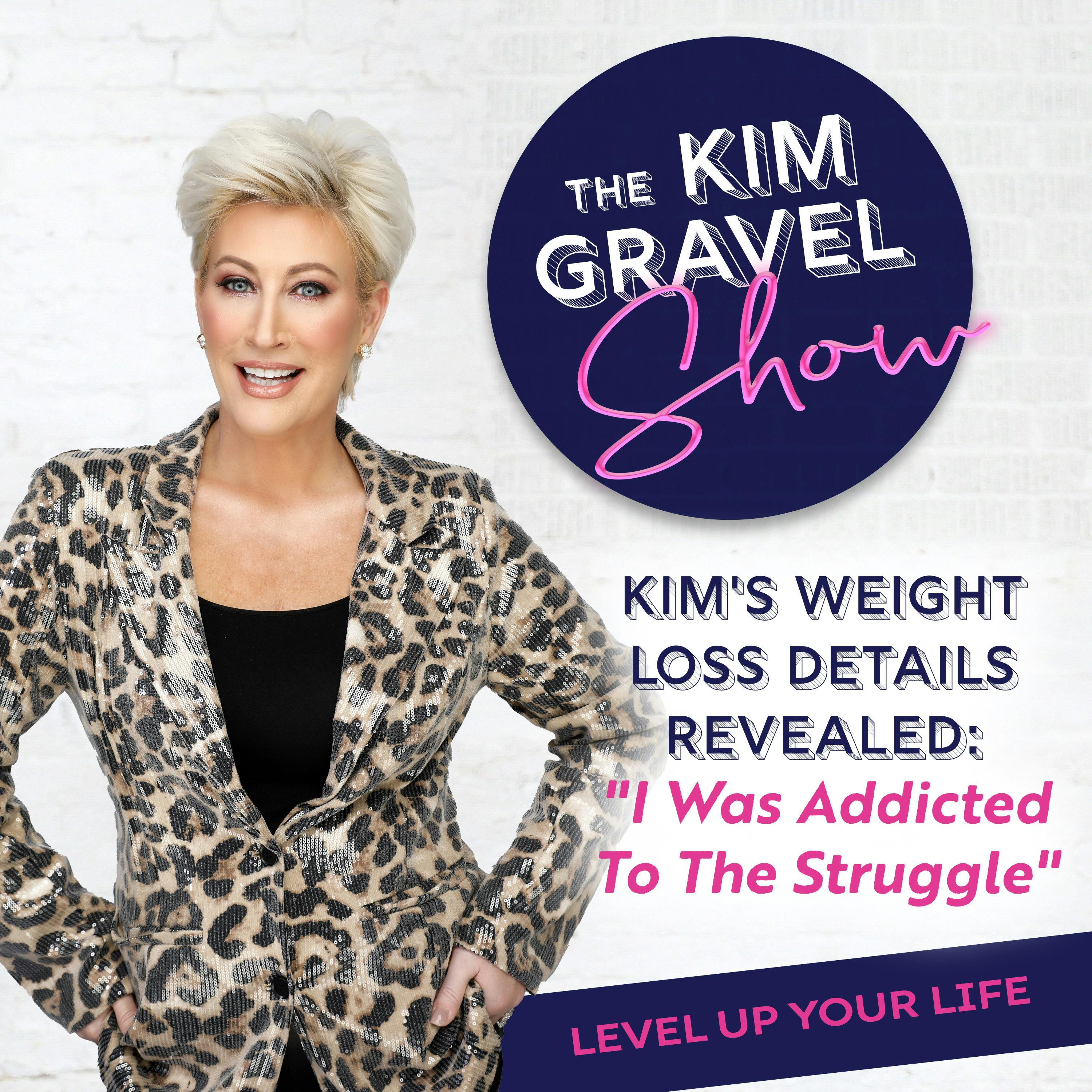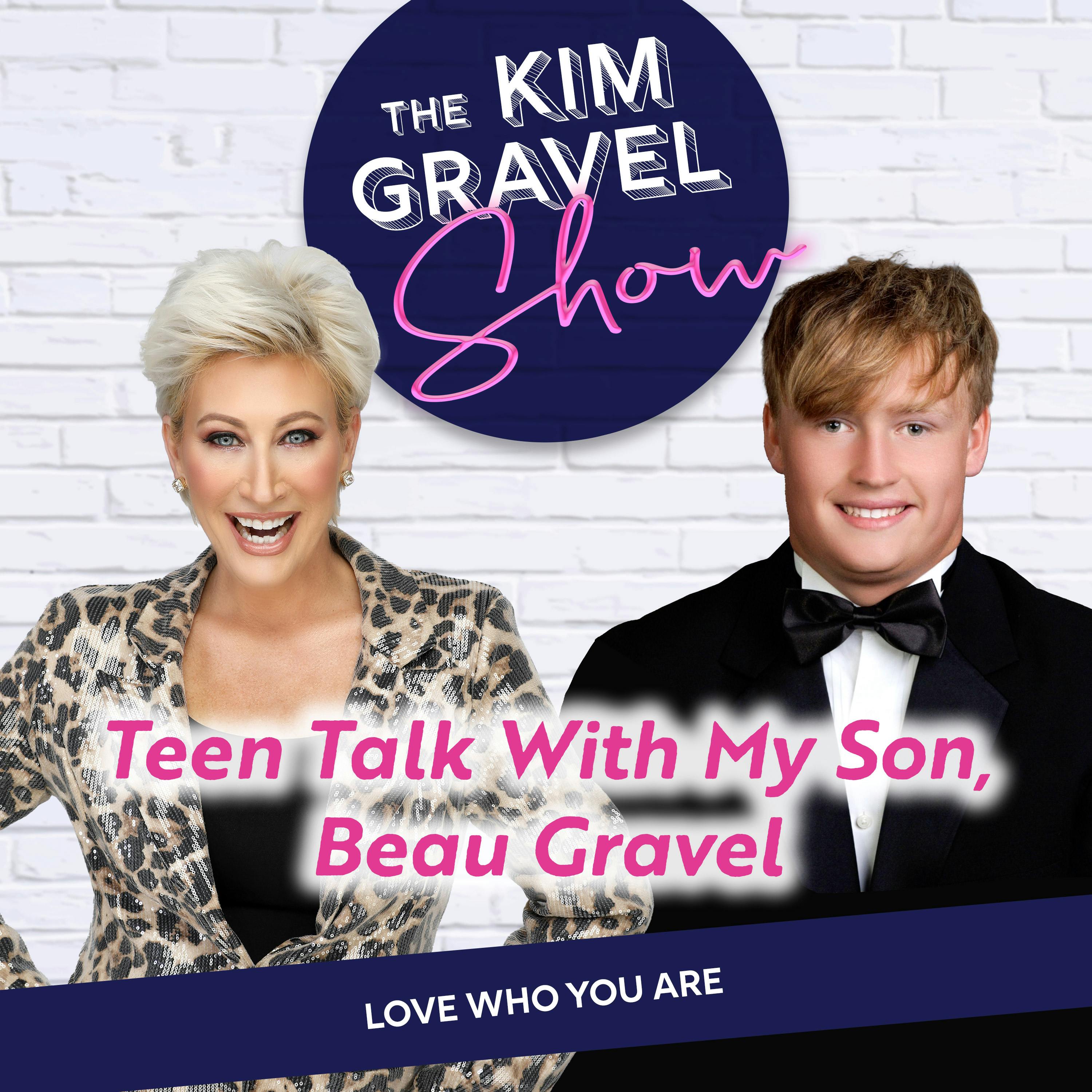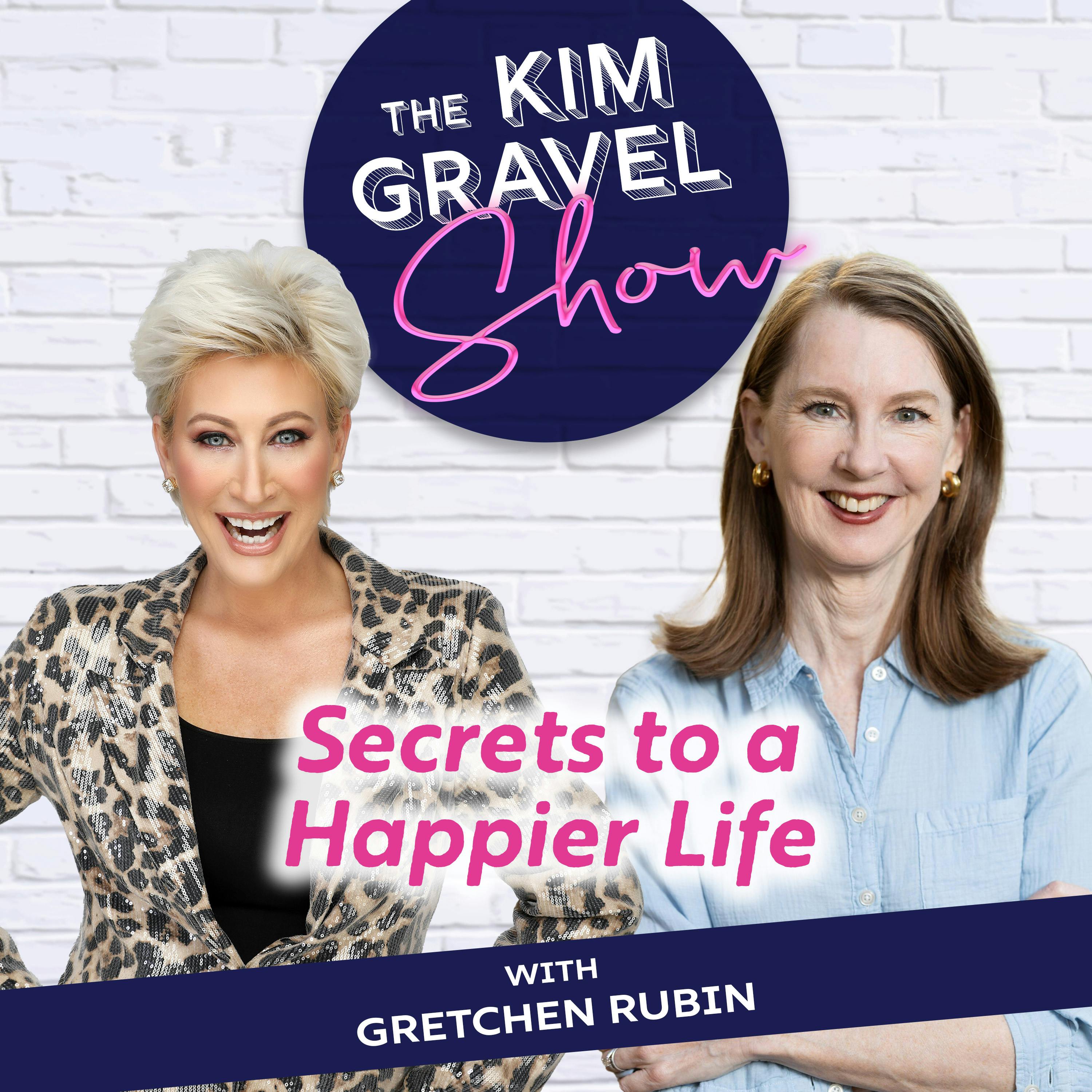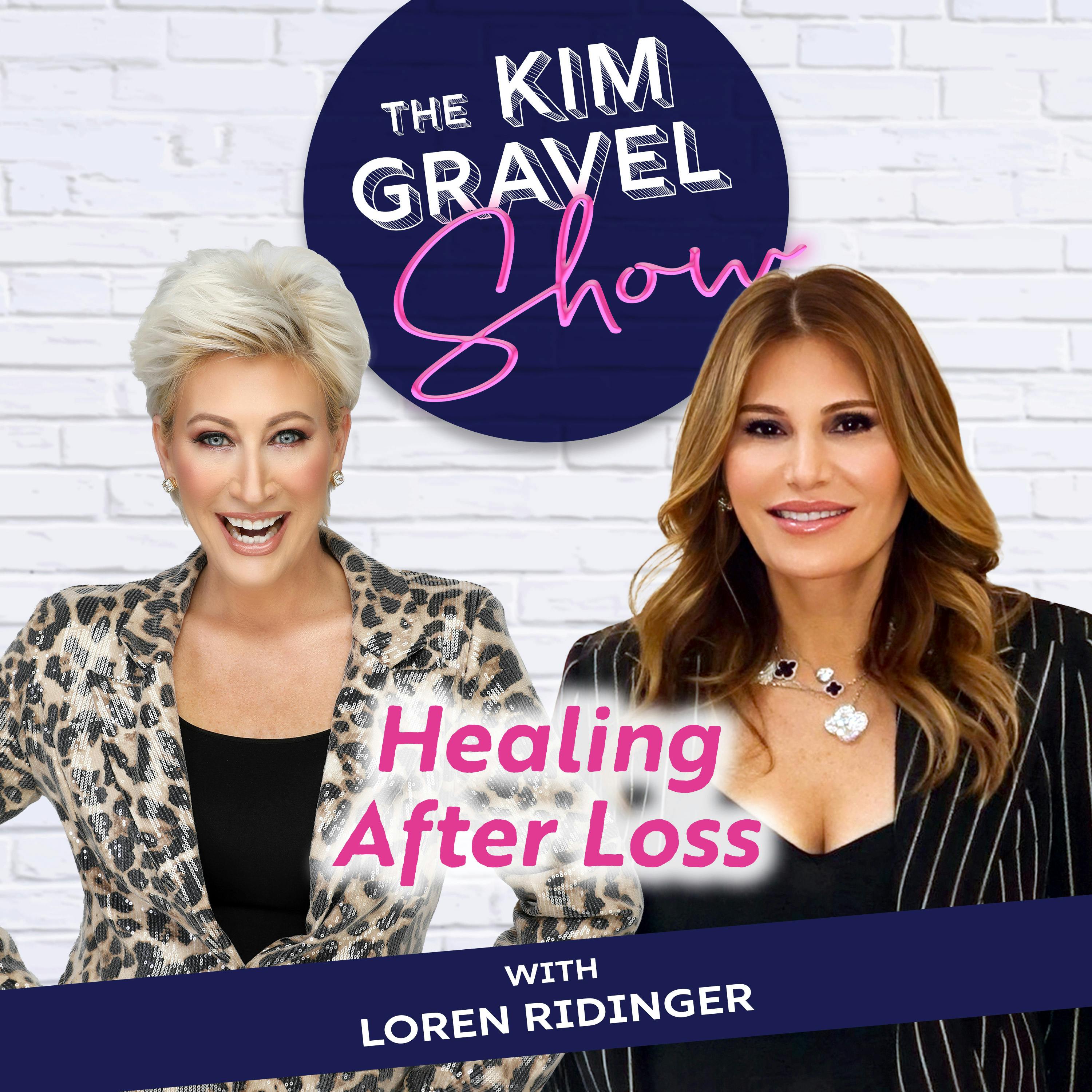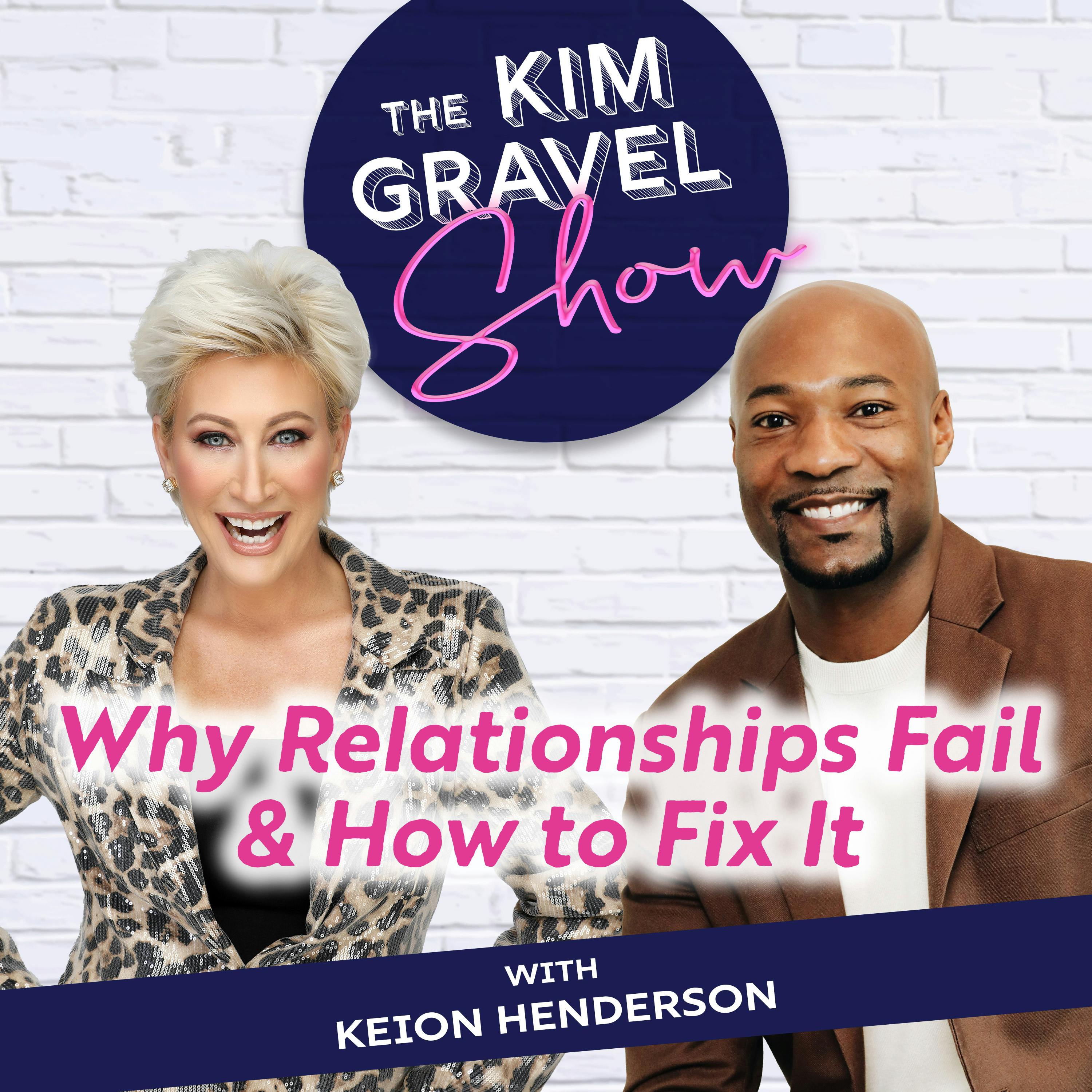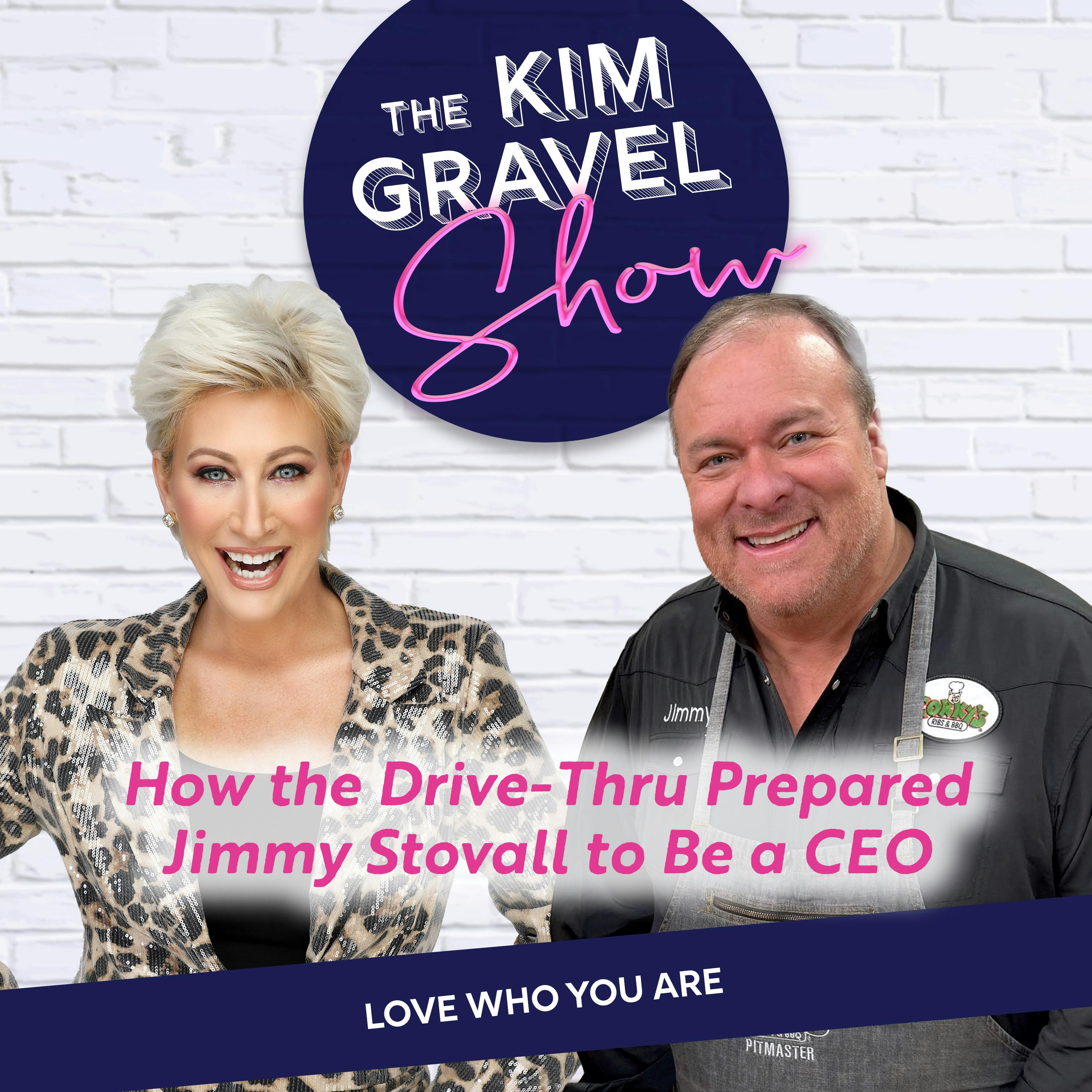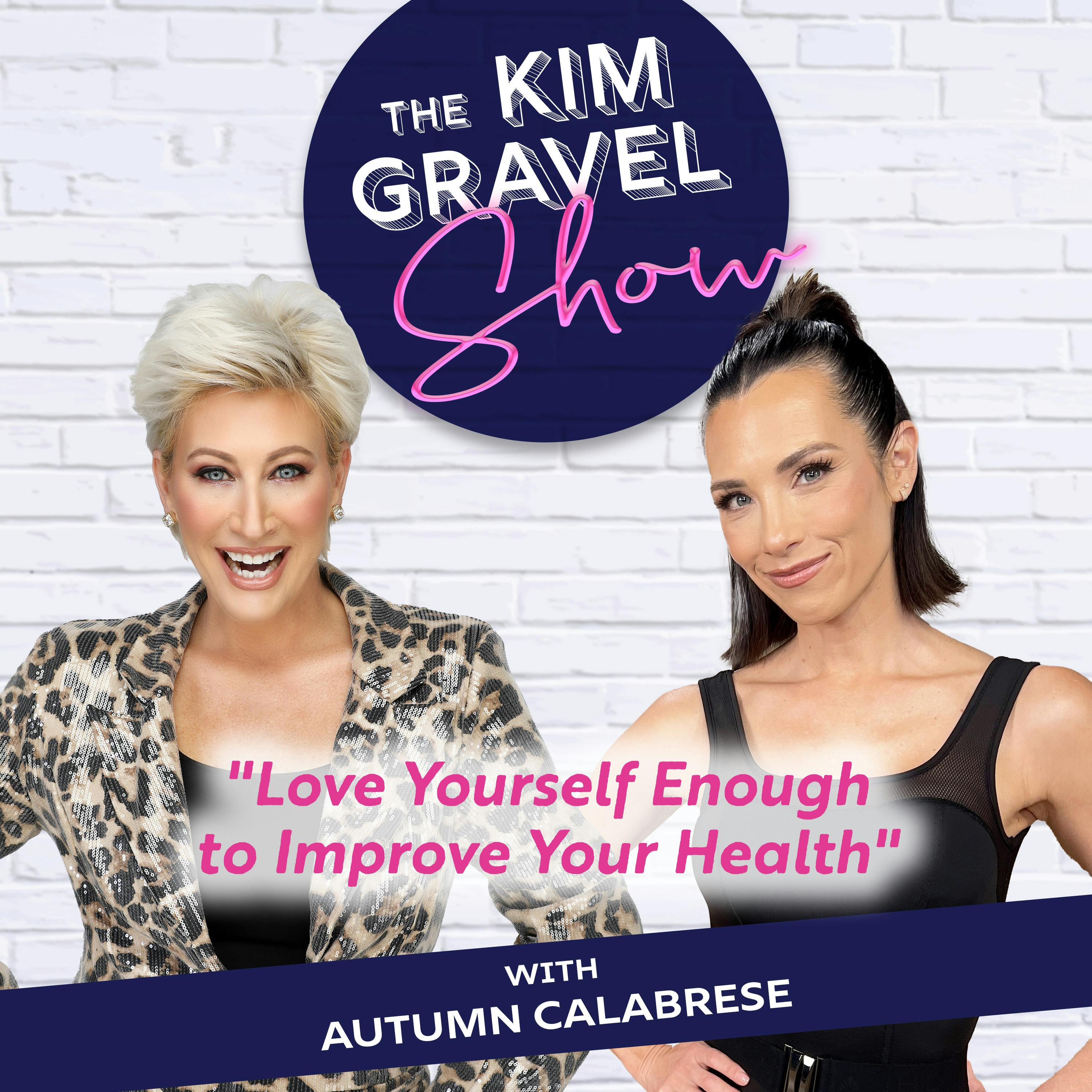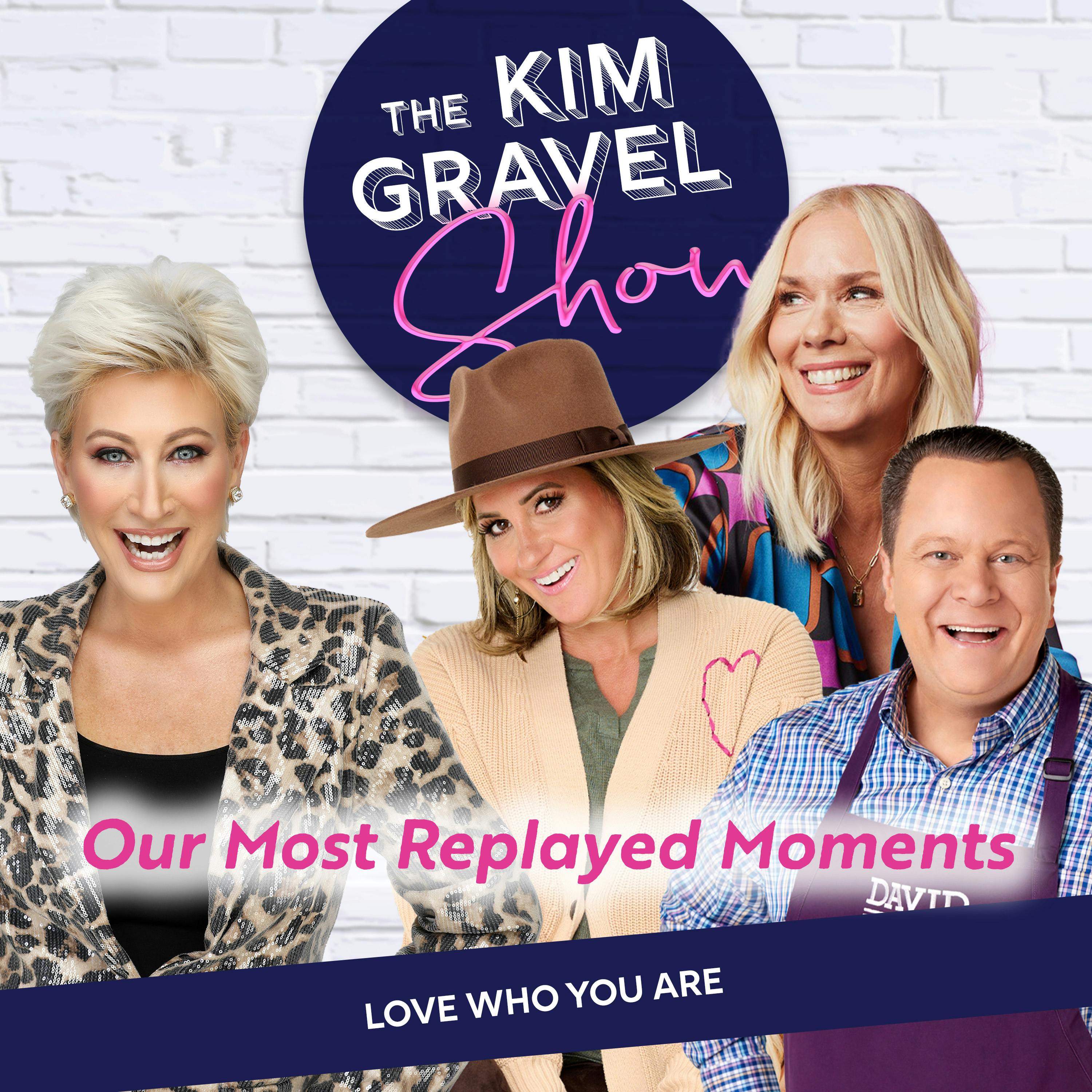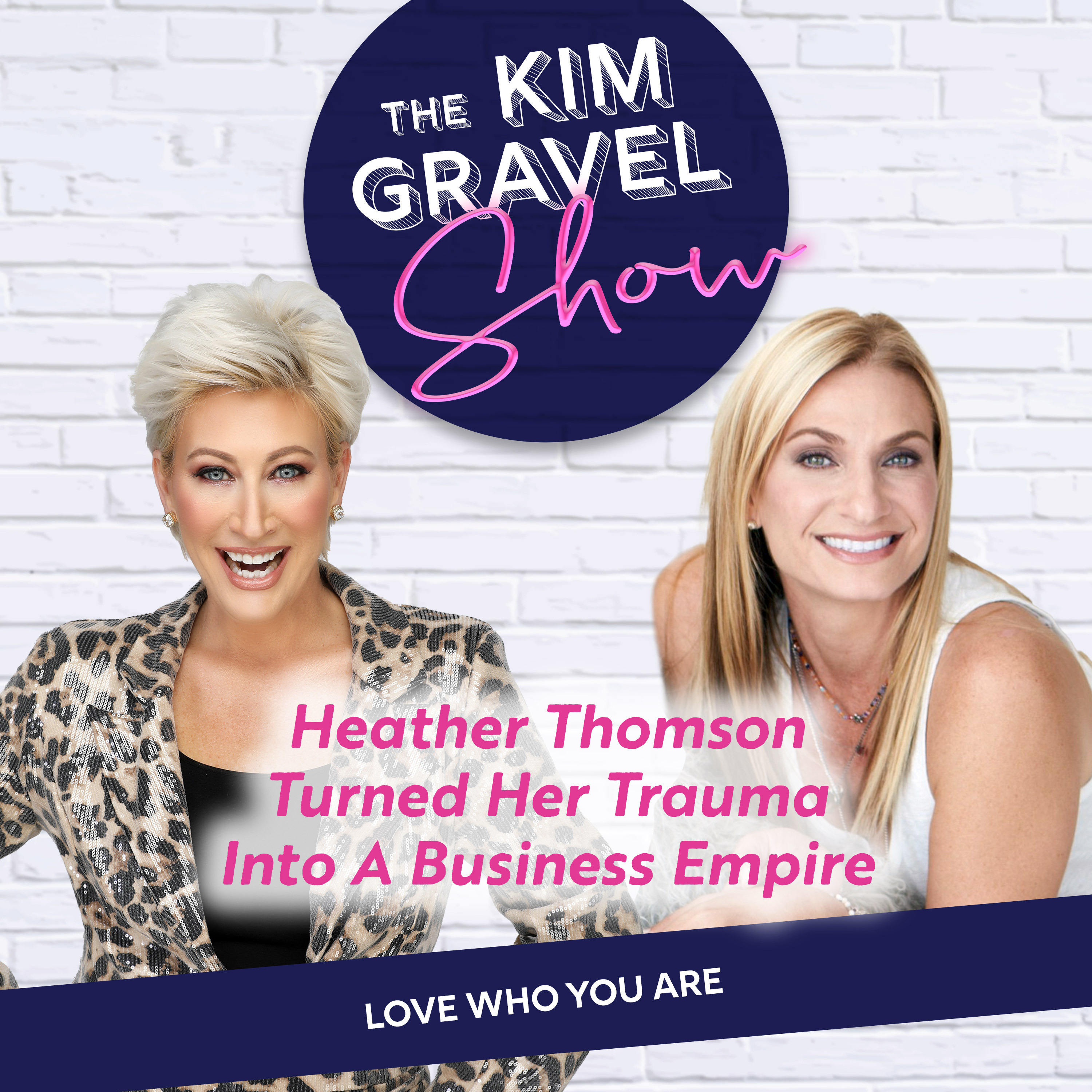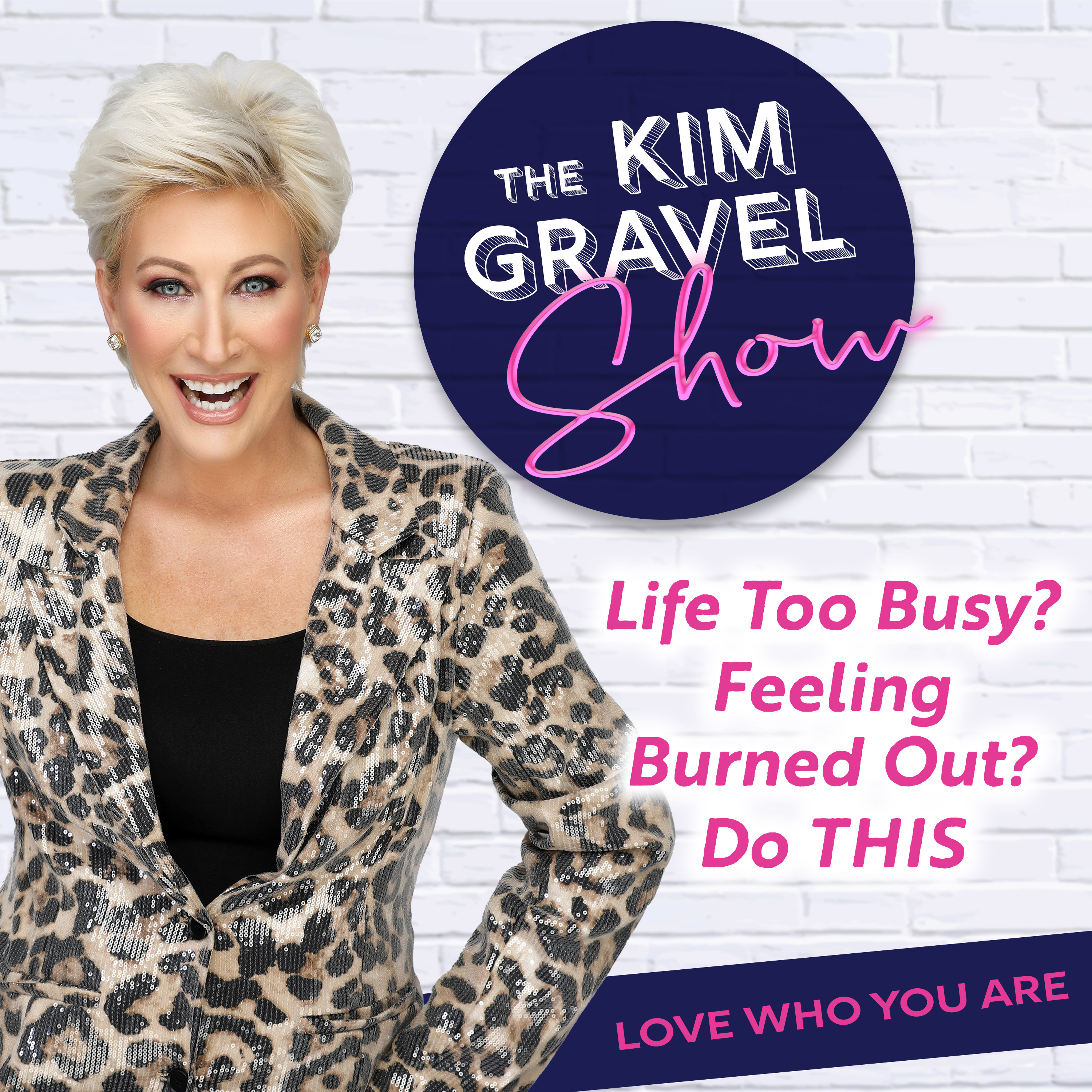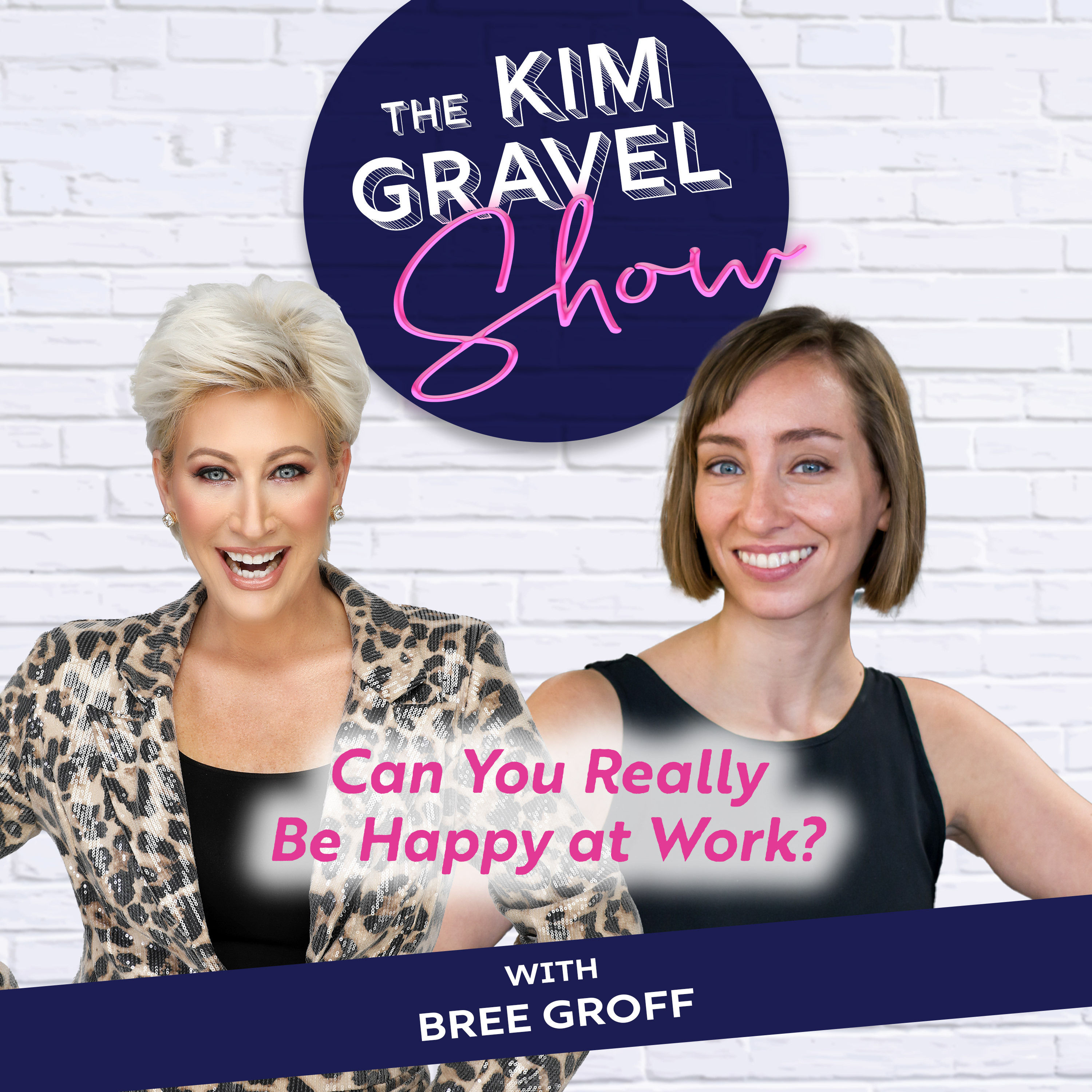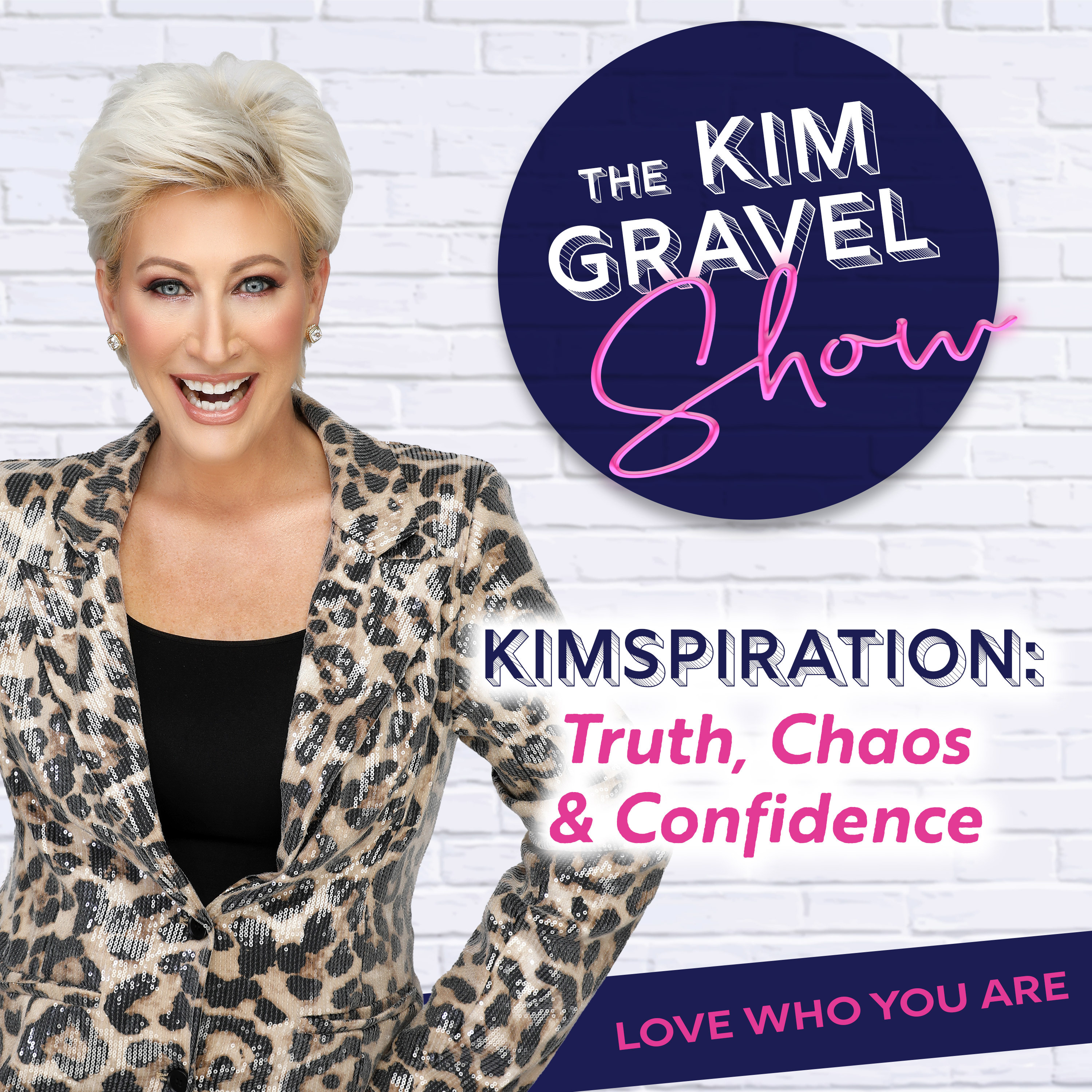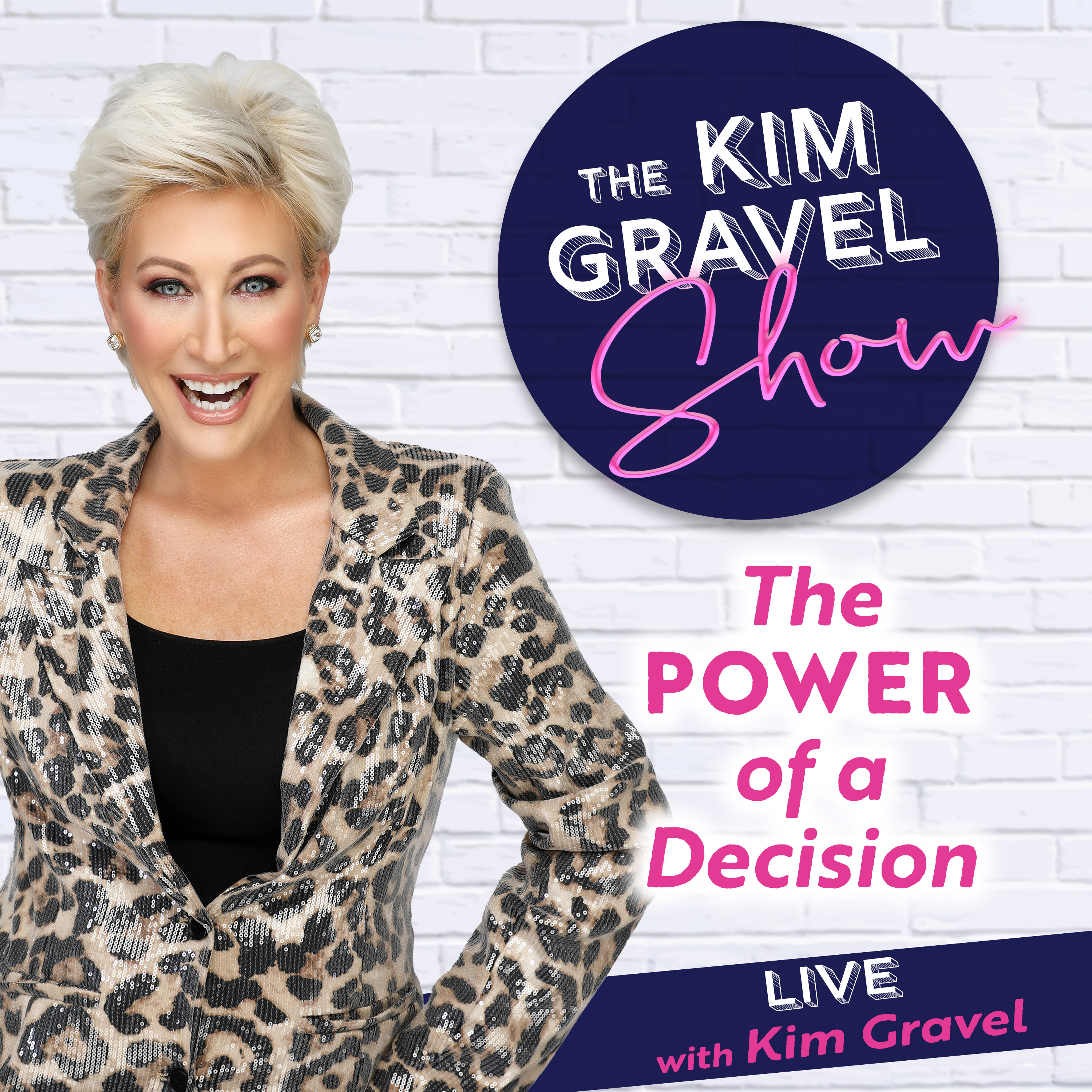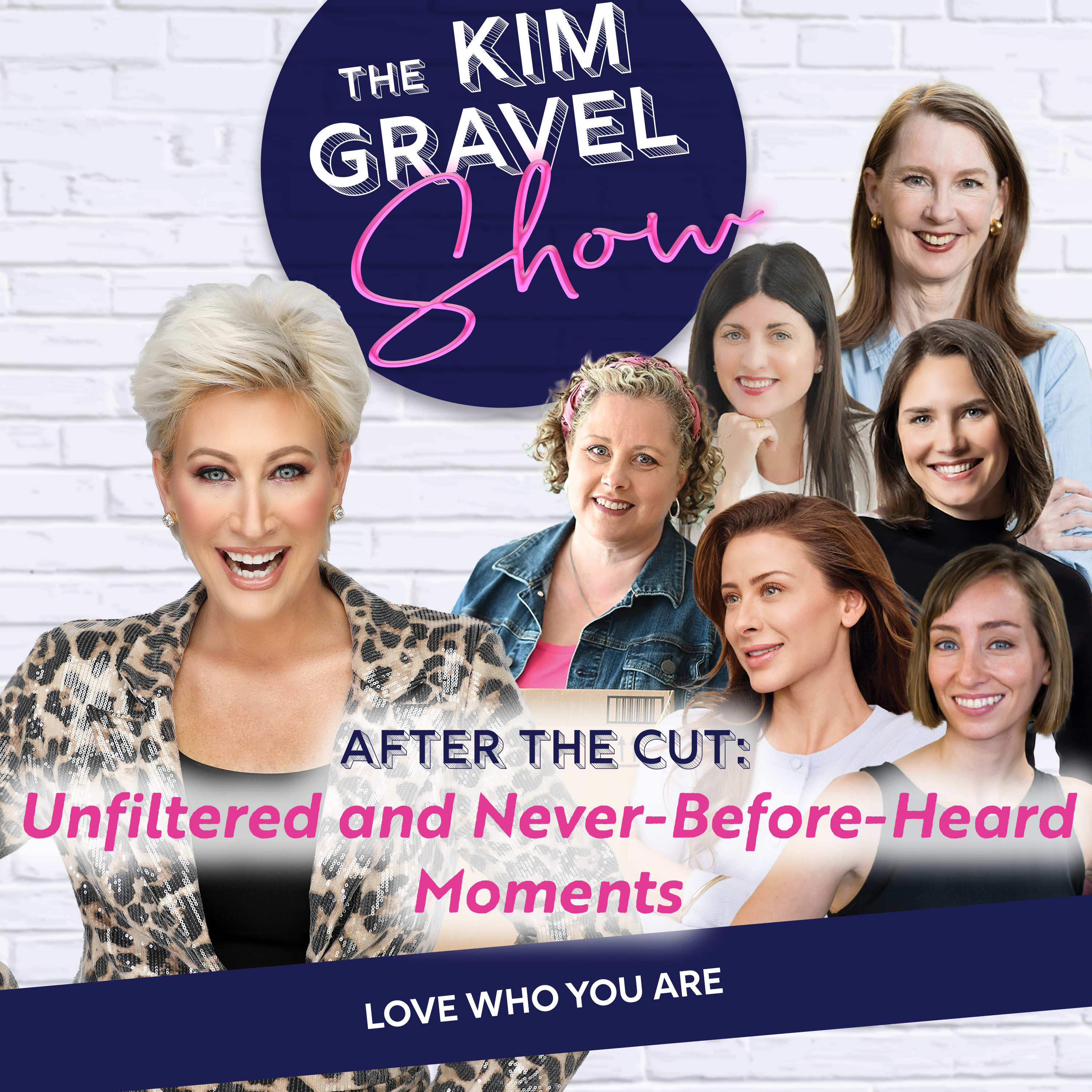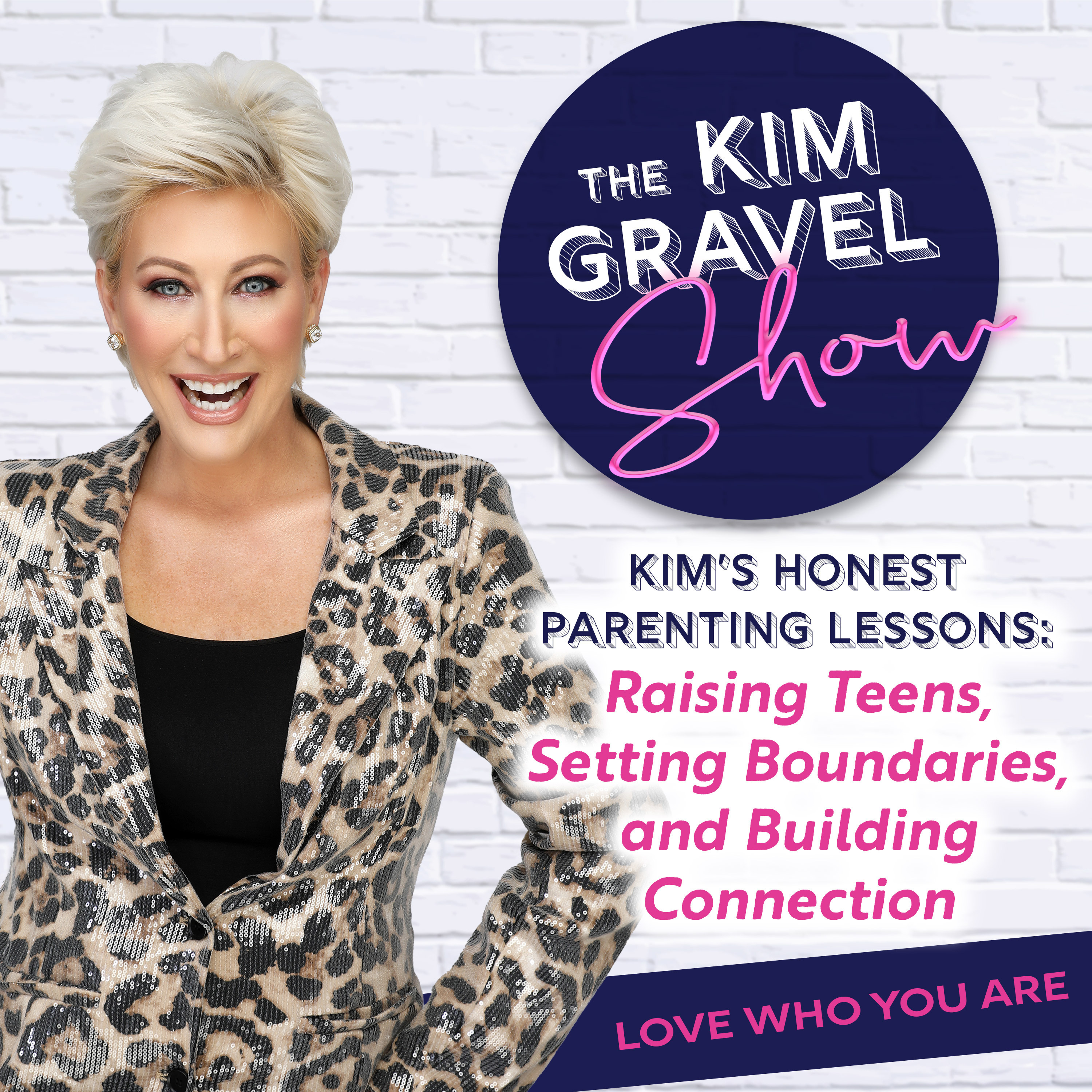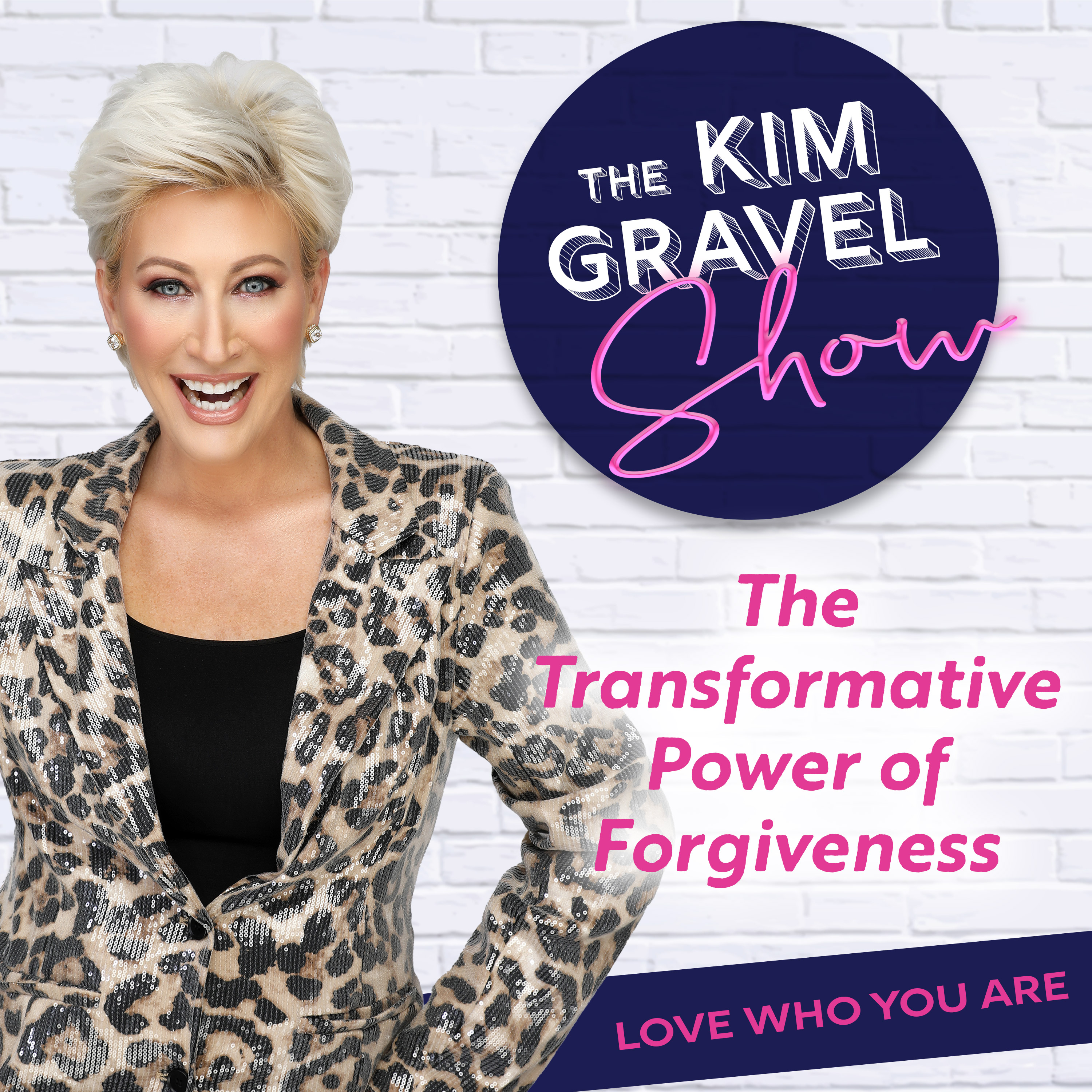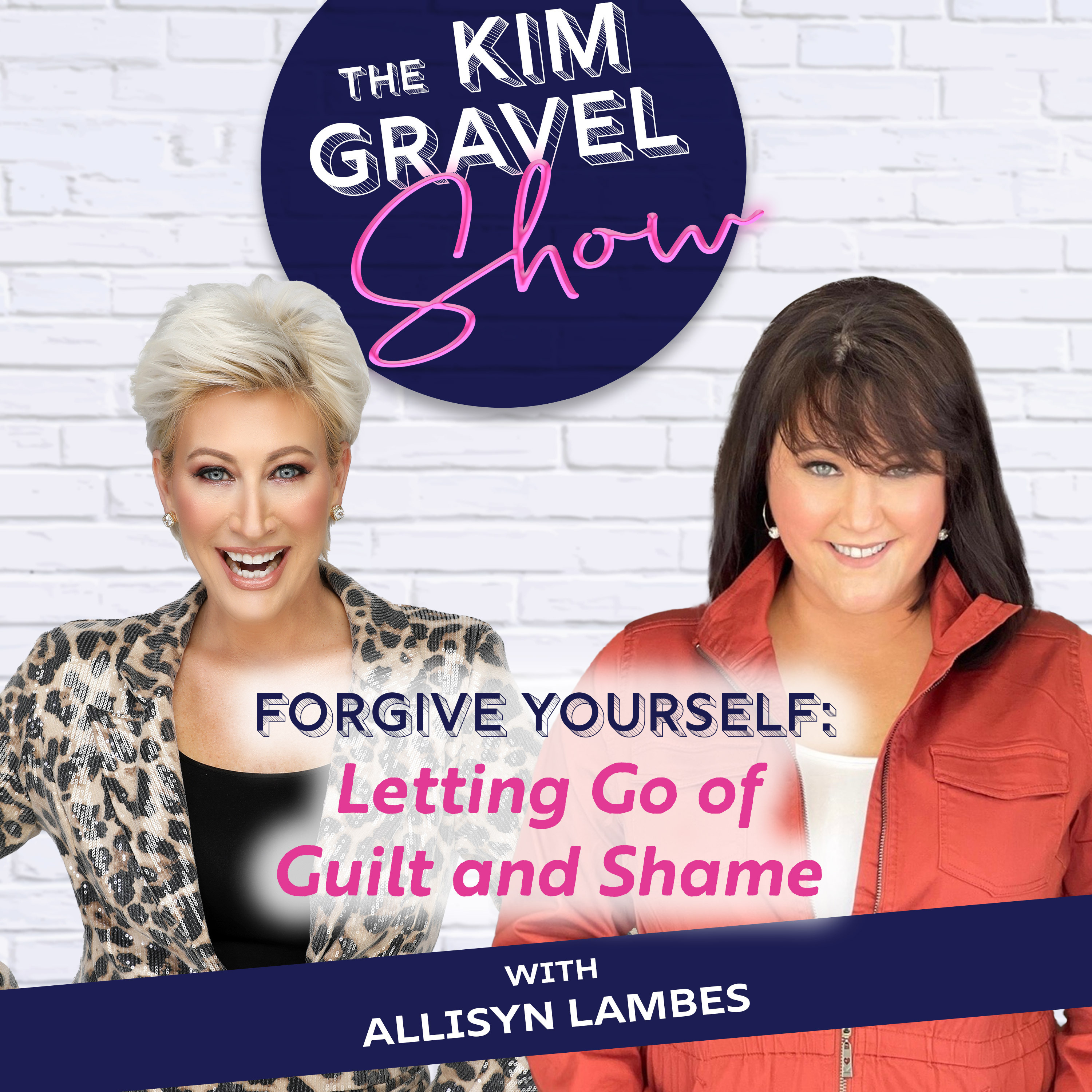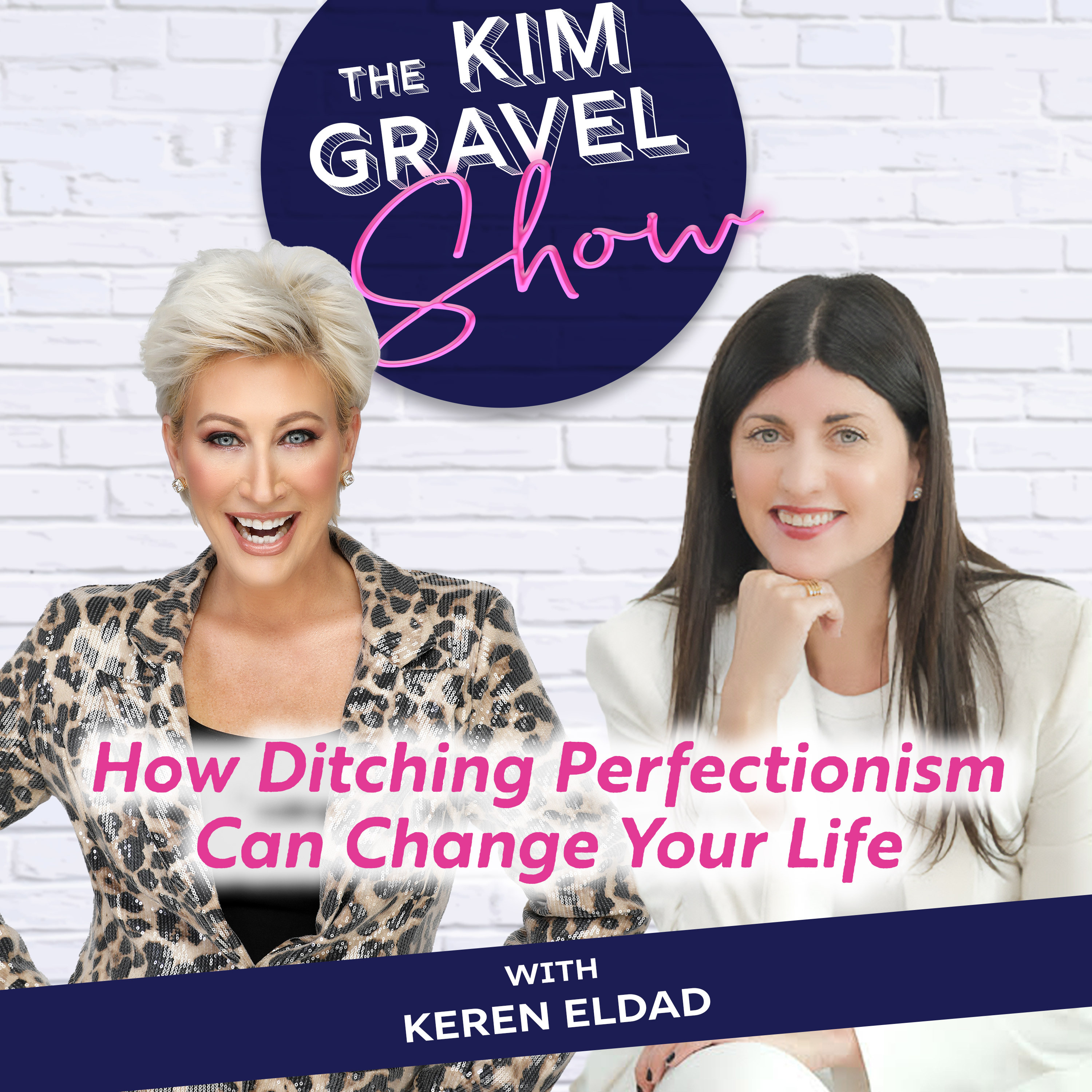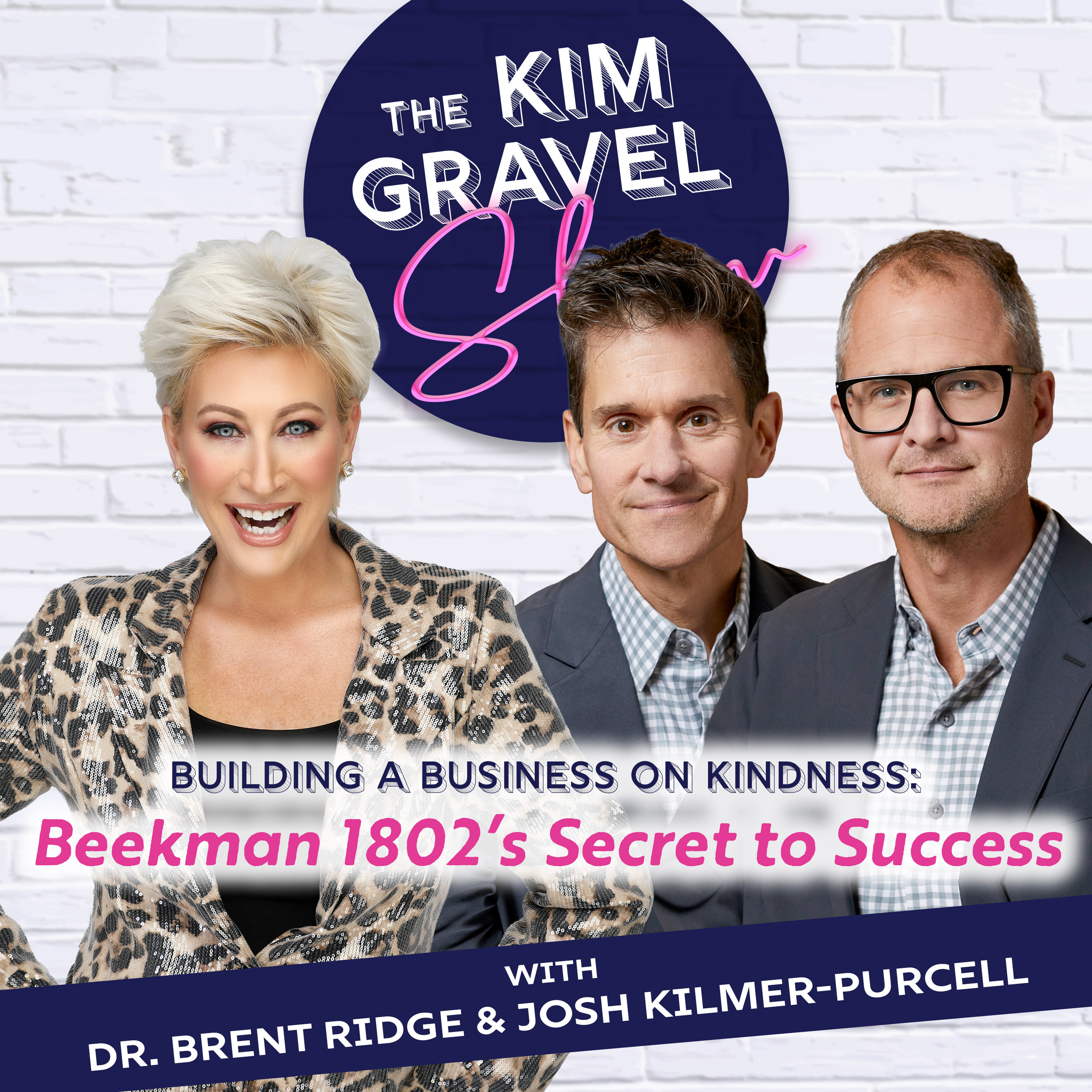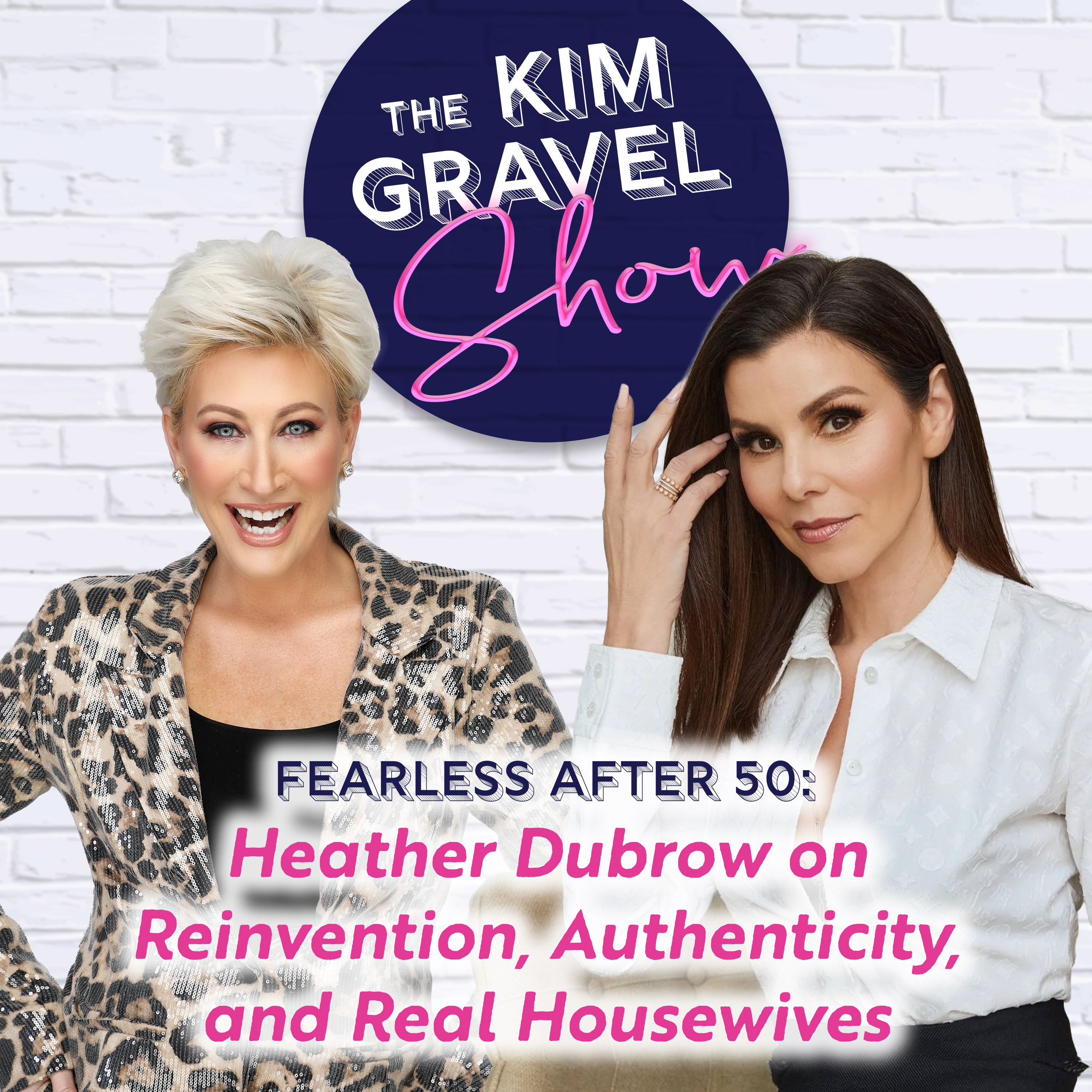Rewrite the Story You Tell Yourself with Katie Horwitch

Do you "thought block" yourself? Change the story you tell yourself with practical tools to transform negative self-talk into positive growth.
This week, we kick off our series on Women in Business with Self-Talk Activist Katie Horwitch. Katie specializes in transforming negative self-talk into lasting positive change. In this episode, we'll discuss types of negative self-talk, how to identify them, and practical tools for improvement. Katie is dedicated to empowering women by reshaping their inner dialogues to foster self-awareness and personal growth. If you're looking to make meaningful changes in your life and career, this episode is for you!
Katie's new book is out now: Want Your Self: Shift Your Self-Talk and Unearth the Strength in Who You Were All Along
In this episode:
- How to change negative self-talk with practical tips
- How negative we normalize self-talk and self-deprecation
- How to build self-trust
- How to overcome self-doubt in the workplace
- How to empower young girls
Katie Horwitch is a nationally-recognized author, speaker, mindset coach, and self-talk activist. She is the founder of WANT: Women Against Negative Talk, a platform that gives women tips, tools, motivation, and inspiration to move forward fearlessly in their lives by shifting their negative self-talk patterns. Katie has been featured by SXSW, Lululemon, The Cut, mindbodygreen, Livestrong, and more, has coached some of the world’s most prominent brands and leaders on building confidence and creating impact, and has been praised by CNN as a “woman empowering others around the world.” As the host of the long-running self-talk podcast WANTcast: The Women Against Negative Talk Podcast, Katie tackles subjects like loneliness, jealousy, and self-worth, and interviews visionary women about taking a proactive approach to life’s high highs and low lows.
Here is my favorite quote from this episode:
"With authenticity and integrity comes self trust. Self trust means that you are good for your word.” - Katie Horwitch
Do you want to hear your voice on the show?
Call me and leave me a voicemail at 404-913-6460 and let me know why you love who you are!
There is BONUS CONTENT in our free newsletter so make sure to subscribe at https://www.kimgravelshow.com
Collecting Confidence, my best-selling book is now available in paperback with a brand new discussion guide!
Click this link to buy it now.
Join my Love Who You Are movement at https://lwya.com
Connect with Me:
Connect with Katie Horwitch:
Women Against Negative Self Talk
Book: Want Your Self: Shift Your Self-Talk and Unearth the Strength in Who You Were All Along
New episodes of The Kim Gravel Show drop every Wednesday at 6pm EST.
Support our show by supporting our Sponsors:
Shopify
Shopify is the global commerce platform that helps you sell at every stage of your business. Shopify makes it easy for you to show up exactly the way you want to.
Customize your online store to your style with gorgeous, flexible templates and powerful tools.
Just go to Shopify.com/kim and get a free trial for only $1 per month
Ro Body
You lose weight, it comes back. You lose it again. It comes back again. If this cycle sounds familiar to you, there’s a better, more sustainable way to lose weight. Over 200,000 people have already chosen Ro to help them lose weight.
Average weight loss is 15-20% in 1 year, with healthy lifestyle changes. BMI and other eligibility criteria apply.
Go to https://www.ro.co/kim and pay just $99 for your first month.
*This transcript was auto-generated*
Kim:
Zac, I've got a big question for you. Now listen carefully.
Zac:
I'm scared. I'm scared. I don't like this. I don't want you start with a question for me, Kim, I don't like this at all.
Kim:
I love it. I love how I just always put you on the spot.
Zac:
You really do. Especially. We've been rolling for 3 seconds. Okay.
Zac:
Kim, what do you do?
Kim:
I love making people feel uncomfortable. I love the awkward moments. Okay, so this might be an awkward moment, but I've got a question. Do you talk block yourself?
Zac:
Do I talk block myself?
Kim:
Do you know what that means?
Zac:
Do. I don't know what that means. What does that mean, Kim?
Kim:
It's like when you talk yourself out of things, when you down yourself, when you are, you know, your inner dialogue that you're talking to yourself.
Zac:
I see where you're going with this. Yes. All the time. All the flipping time, Kim.
Kim:
Okay, well, I'm just gonna ask you and everybody listening, what's the meanest thing you've said to yourself this week? And if you tell yourself, like, I'm not good enough, I'm not smart enough, I'm not talented enough, then this episode is for you. You got to listen, because we're going to talk about how to have a self talk that doesn't block you. It actually lifts you.
Introduction:
This is The Kim Gravel Show.
Kim:
This is the first episode, Katie in a three part series about women in business.
Katie Horwitch:
It's the piece of the puzzle that we're nothing talking about nearly enough when it comes to making changes in our own lives and own world.
Kim:
What she's saying is, is how you tell your story. I've never heard that before.
Katie Horwitch:
We bond quicker and deeper over negative things than we do positive things.
Kim:
We're just fluent in this crappy negative self talk.
Katie Horwitch:
The issue with manifestation is that how do you build trust with the people in your lives?
Kim:
I want some tips. I want some tricks. So much, girl. Hang on.
Katie Horwitch:
Let's go. I love this conversation. Let's go.
Kim:
Okay. My guest today is a mindset coach who has spent nearly two decades studying the stories we tell about ourselves, y'all. She's been featured everywhere like CNN, ABC, NBC News, and she's coached some of the world's most prominent leaders in brands like, I mean, DreamWorks, Lululemon, and Google. She is the founder of want women against negative talk. It's a platform that gives women tips, tools, and motivation and inspiration. She's the host of the WANTcast podcast, and she just wrapped the 9th season and she's got her book out called Want Yourself Unearth the Strength In Who You Were All Along. It is big, big, y'all.
Kim:
Let's welcome Katie Horwitch. Right, Katie, how is that unearthing your strength, girl?
Katie Horwitch:
It takes a lot to make me speechless. That was, you know, my partner Jeremy and I walk around the house and we sing all of the time. We sing our questions to each other. We sing our answers to each other. I am going to relisten to this episode, learn that short, sweet song, and I am going to work that into our song repertoire.
Kim:
I think that should be his ringtone. That should be your ringtone. And, Zac, send her that. Make sure she gets that.
Zac:
It's yours, Katie, we're going to send it to you. You can use it however you want.
Katie Horwitch:
Best podcast party favor ever.
Kim:
Thank you. Thank you. This is the first episode, Katie, in a three part series about women in business. And I thought you would be the perfect first episode because mindset is everything in starting anything and becoming anything. And you call yourself a self talk activist. I love that so much. What does that mean? Like, explain what that is.
Katie Horwitch:
Yeah. So I love that you picked up on that because that is honestly why I do what I do and why I'm so passionate about what I am passionate about, which is helping people shift their negative self talk in a real lasting way. Because like you said, it affects, and I don't use overarching terms like everything or nothing lightly. It really does affect everything. Because your self talk, I define self talk. Let's just, like, put that out there first. Self talk is the story you tell yourself about yourself 24/7 as you walk through the world. And so what that means is if you're telling that story to yourself, about yourself as you walk through the world, that's going to inform you how you walk through the world.
Katie Horwitch:
And that is going to inform how you interact with people. It is going to inform the decisions you make or don't make. And so I really see self talk as the piece of the puzzle. When we say, like, we want to be the change we wish to see in the world, it's the piece of the puzzle that we're not talking about nearly enough when it comes to making changes in our own lives and own world and in the world at large.
Kim:
I'm a talker. I'm sure, Katie, you're a talker. And, like, sometimes things come out of your mouth, you don't even know what you're saying. You know, I put my foot in my mouth about a kajillion times, I have said some really emotionally charged words to other people and to myself. Are you talking about just not negative self talk? It's not about just what's coming out your mouth. Are you talking about what's going on inside your head, too?
Katie Horwitch:
Oh, yeah. I mean, it's really interesting. Cause as I was, like you said, I've been doing this work for a bazillion years, right? And when I was researching the book, I learned even more that I didn't know in the decades of work that I had done before I started writing the book. And one of the most interesting things for me, Kim, was that not everybody's self talk shows up as words, and not everybody's self talk shows up as words that come out of their mouths or inner monologues that they're saying in their head. Are you an inner monologue person?
Kim:
Oh, honey, I never shut up inside my head or outside my head.
Katie Horwitch:
Totally.
Katie Horwitch:
You know, I grew up in the eighties and the nineties, and there was a show that was very popular in the early nineties called Clarissa explains it all. And it was basically this tween Zac. You know, it was this tween who was sitting and, like, turning to the camera, breaking the fourth wall, and narrating her entire life to people. And I was like, oh, well, that's me. Like, I am Clarissa. She is me. I am she. But in researching this book, what I found is that there are actually people who self talk using air quotes, manifests itself through images.
Katie Horwitch:
People say that they see a movie playing out in their minds. It manifests as feelings. So these abstract feelings, like, ooh or eek or stuff like that. And so a lot of times when people say, oh, I want to be nicer to myself, and they say, well, I'll just use positive affirmations, or I'll sort of, like, I'll say this, not that that ignores that huge subset of people who aren't starting with words to begin with. So when I say self talk, it's however you tell your story. And, you know, if we're using metaphor, some of us tell stories and read stories through picture books, through graphic novels, through long novels, through not like, there are so many ways to tell and to ingest a story. And so it's about.
Kim:
Hold on, hold on. We gotta stop right there, because that's huge.
Katie Horwitch:
Yeah.
Kim:
Did you hear that, Zac? It's like I just had to write it down. It's how you tell the self talk, y'all. What she's saying. Is. Is how you tell your story. That is so. I've never heard that before.
Katie Horwitch:
Isn't it bananas?
Kim:
No, explain that in detail, because I think you gotta begin there. Right? Like. Cause we hear about mindset and we hear about positive talks, but I've never heard it said that way.
Katie Horwitch:
Yeah. Yeah. It's a way more intuitively.
Kim:
Yeah. I just experienced this this morning with my nephew. That's why I'm saying that, like, it's the story he's tell his story. It's not only how he's telling his story, it's what the story is. Right. Like, explain that in massive detail to us.
Katie Horwitch:
Yeah. It's. I love. I love that you want to double click into this because. Yeah, it's about. It's about the story you're telling, like, what that story actually is and how you're experiencing that story. And so if. Let's say you are someone.
Katie Horwitch:
Let's say, like, I don't know, your nephew, but maybe your nephew is a visual self talk person. Maybe your nephew sees.
Kim:
He's verbal.
Katie Horwitch:
Yeah, he's verbal.
Zac:
Everyone in Kim family, it turns out, is verbal.
Katie Horwitch:
Zac, what about you? I'm just curious. And then we'll go back to this. Are you an inner monologue, or do you see stuff? Do you feel stuff?
Zac:
I'm a little of both, but I'm mostly inner monologue, I think.
Katie Horwitch:
Yeah. Yeah. I have a very close friend who. Her husband said that he was like, I don't know how to put words to the things that I'm thinking and feeling in the way that you do. And so. Okay, so let's take him. He is a movie in his mind type person.
Kim:
Okay.
Katie Horwitch:
Think about if you see a really good, really complex movie, and then someone asks you to describe it a lot of times, right? And that'll happen for me, where I'll watch this, like, beautiful, artistic masterpiece, and people will be like, oh, well, what's it about? Or what happens? And it's really hard to match my words to what it actually goes on because it's like, well, you just. You just have to experience it. And so what happens with our self talk story that we build as we start to build it through words out loud? Because no matter, like, how your self talk shows up, if you are someone who speaks words out loud and interacts with other people, you're going to be explaining yourself, and you're going to be interacting with other people throughout your day. In the small moments, in the big moments. And those words, if you are not a words person, an inner monologue person. Those words might not actually match what's going on. And so what happens a lot is that we choose the words that are the closest to what we're feeling or what feels like, okay, it's gonna get us what we, what we want and what we actually crave in this situation. And that's how you see a lot of people, like, bonding over negativity.
Katie Horwitch:
That is something that is huge and it's something that both.
Kim:
But why? Yeah, yeah, but why, Katie? Like, why is it the negative? It's so much easier to bond in the negativity. I mean, you see that played out in the media and politics.
Katie Horwitch:
There are studies that show that we bond quicker and deeper over negative things than we do positive things. Right. So we would love to think that we form these really close bonds over the things that we all love and agree on, which is true. However, if that first, like bonding bid for connection is negativity, and if you bond with someone, then for many of us, what will go on in our heads and hearts is like, oh, that worked. Oh, we're connected. So I'm going to do more of that.
Kim:
What you feed, you're feeding it, okay, exactly.
Katie Horwitch:
Exactly. And so then we start learning that talk, which then, you know, how do you learn a language? You learn it like a language. You learn your self talk like a language and that's practicing inside and practicing outside. So when you're practicing negative talk outside with someone, whether that's critiques or what you're not liking about your life or just like, oh, yeah, we bond over being petty, something that feels like, oh, gossip, something like that. That is not going to not work its way into the story you're telling yourself about yourself as you walk through the world, because you're getting something from that negativity. And so your brain is going to go, I better become fluent in this. And that's why we have to work even harder to make different types of connections.
Kim:
Oh, my gosh, you just said something that was huge. Okay, so, Katie, a lot of us with this negative self talk, it's not that we're half glass, we're glass half empty people or negative people. We're just fluent in this crappy negative self talk. We're fluent.
Katie Horwitch:
Yeah.
Kim:
Okay. Are there like specific word choices that we use? Are some more important than others? Like, how important is it to choose our words both mentally and verbally?
Katie Horwitch:
Oh, that's such a good question. This question is kind of, our answer is too pronged because a yes, it is incredibly important. However, those words stem from what's going on underneath the surface and subconsciously. And so, yeah, it's really important to be mindful of the words that we're saying. But then the problem that a lot of people find themselves in, I've definitely found myself in this problem is, okay, well, if I don't say this, then what do I say? Or if I say something, then I replace it. I'll be like, well, that feels fake. And there is research to back that up that if you're saying, like, you're saying stuff that you don't believe, so let's say.
Kim:
Let's say toxic positivity. Toxic.
Katie Horwitch:
Totally toxic. Positive.
Kim:
Or.
Katie Horwitch:
Or even just, like, if you. Let's say. Let's say you're starting a podcast, I think there's. There's a lot of people who are listening, who are doing incredible things, and that's some. Something that many people have probably been told like, oh, you're so great. You should start a podcast. If people are dealing with self doubt around starting a podcast and they are telling themselves, well, I don't have anything to say. And then they're like, no, I'm going to replace that with, I have a lot to say.
Katie Horwitch:
If you don't actually believe that you have a lot to say, then it feels like you're lying to yourself. And what can happen is a form of cognitive dissonance happens where what you're saying doesn't match what you believe, and it doesn't feel good to be a liar, and then it reinforces the self doubt and all the stuff that you're trying to address. Does that make sense?
Kim:
I'm writing in the book right now. I'm writing. I'm taking notes.
Katie Horwitch:
Oh, my God. Author's dream, by the way.
Kim:
No, this is like. This is like, so, okay, does manifest. Okay, I got several questions.
Katie Horwitch:
Hold on.
Kim:
Let me just get one out at a time. You know, Zac, I get excited about this kind of stuff. We're in it.
Zac:
This is gonna be a seven hour interview. I'm sorry, Katie.
Katie Horwitch:
I hope you.
Kim:
14,000 hours. So, Katie, like, is this. Does this go hand in hand with, like, manifestation, too? Like, is there a bigger picture here with negative self talk? Cause I know the book is talking about that, but. Okay.
Katie Horwitch:
Yeah. Oh, I love that you brought up the manifestation question, because.
Kim:
Let's go. Let's go.
Katie Horwitch:
Manifestation. Like, it's not. Here's the thing. These are all tools to be in a toolkit. If you think of a toolkit, if someone tells you hey, go build a house. And all you have in your toolkit is a hammer. You're going to be like, well, I can't go build a house because all I have is a hammer. I need different tools.
Katie Horwitch:
So, yes, manifestation is a tool. Yes, positive affirmations are a tool. But it's being mindful about not only when we use these tools, but how we use these tools. You're not going to hammer something with a screwdriver. It's just going to be incredibly, incredibly inefficient. It's going to take you a really long time to build that house. So with manifestation. Manifestation, a lot of people will describe it as, you know, if you can visualize what's going to happen, then it will unfold.
Katie Horwitch:
The issue with manifestation is that there has to be a level of proactivity attached to it, and there has to be a level of believability. So manifestation, feeling. Yeah, like, it has to involve feelings that feel. Feel like, okay, I'm on my own side. It has to involve self trust. So you got to build that self trust first. And it has to involve a little more structure than I find some people who are intrigued by manifestation want to get into. Like, I define positivity as being cohesive, not, yeah, you've got to take the steps to actually take some work manifest.
Katie Horwitch:
Yeah. What you want, you know.
Kim:
Well, you mentioned cognitive dissonance, which I looked up and just actually, Zac did and put it up here for me. And it is. The discomfort a person feels when they're behaving does not align with their values or beliefs. I gotta say, I think we've got to park here for. Cause I got so much, girl. Hang on.
Katie Horwitch:
I love this conversation. Let's go.
Kim:
I want people to understand what you're talking about. How do we recognize when that is happening? Because I think this is probably one of the cause we often talk about, Katie. Authenticity and I had a conversation recently with a really important high executive at a high level company, and he said, I need 20 more kims. And I said, I can teach people how to connect. I can't teach people how to be authentic. Is that what you're saying here with this cognitive dissonance?
Katie Horwitch:
Yes. In a way, authenticity comes from cohesion of, you know, who you are on the inside and who you are on the outside. Authenticity also doesn't mean you will see some people who are not very nice people or don't. They are authentic, but they're being authentic. Exactly. I think that we can think of authenticity and we're like, oh, that means that that's being great.
Kim:
Yeah.
Katie Horwitch:
The best person that's not being authentic is staying within integrity, within yourself. And I define integrity as when that Venn diagram of who you say you are and who you on the inside and who you actually are on the outside. It's not a Venn diagram. It is a circle. It is one cohesive unit. And in order to shift your self talk in a real lasting way, that is part of the deal. Because with authenticity and integrity comes self trust. Self trust means that you are good for your word.
Katie Horwitch:
Like, how do you build trust with the people in your lives? You trust Zac, because if he says he's going to do something, he does it. And if he doesn't do it, he will say, hey, Kim, like, oh, my gosh, I'm so sorry, I didn't. He's not going to. He's not going to, you know, make up some excuse that you're like, well, that doesn't sound right, because then that will break your trust. You trust Zac because he's good for his word and he is going to pivot when he, you know, maybe. Maybe step messes up or whatever. Zac, I'm sure you never mess up, but if you were to never mess.
Zac:
Let's be honest.
Kim:
I will tell you right now, Zac has amazing cognitive dissonance. Okay, great.
Zac:
I think that's a really bad thing, right?
Kim:
He's got a bad thing? No. I mean, no, he's got. No, no, no. That's not what I'm saying. He has good cognitive.
Zac:
I don't have cognitive dissonance.
Kim:
I think. You don't.
Zac:
Yeah, that's it.
Kim:
That's the good side of that. Okay, that was amazing.
Katie Horwitch:
That was amazing.
Kim:
Thank you.
Katie Horwitch:
That was amazing. Yeah. Because if you did. Because if he did have good cognitive dissonance, it would mean that he was possessing himself of something that was, like, not going on.
Kim:
That's not what I meant. I meant he doesn't have good. Okay, okay.
Zac:
I learned about cognitive dissonance in psychology class. Learning about smokers who, like, know smoking's bad for them, but they smoke anyway.
Kim:
That's a great analogy.
Zac:
That's cognitive dissonance.
Katie Horwitch:
That's why.
Kim:
But I think it's a good way to start with this conversation, because a lot of people, they know what they need to change, but you really can't. You really can't change if you don't know the diagnosis, if you don't understand, like, why I'm doing this. Cause I'll say. I've know there's several people in my family, and they're critical thinkers. I'm not gonna say they're negative people, but they're critical thinkers, and they've experienced some trauma where they go back to that. They revisit that, and then they try to pretend like nothing's wrong. So, anyway, thank you. You just helped my family.
Kim:
You grew up in an environment.
Katie Horwitch:
Yes.
Kim:
Where negative self talk was normalized, and you were able to identify that and move out of it. How has that informed what you do? And can you give us an example of your family members sabotaging themselves because self sabotage. I've experienced that personally as well.
Katie Horwitch:
Yeah, I mean, my story is not unique in that I think a lot of us grew up where negative self talk and bonding over negativity was normalized for all the reasons that we've already disgust. For me, I sort of came out of the womb as a highly sensitive, highly aware person. And so I would pick up on. Not just sensitive like, you know, my feelings would get hurt easily. I mean, sensitive like walking into a room and being able to read the room and what was going on with each person before I even talked to someone. And, you know, recognizing intuitive dynamics. Yeah, intuitive and discerning. Really discerning and perceptive.
Katie Horwitch:
And I would often times see something that was going on and think, well, that's not right. Like maybe a family member talking about another family member behind that family member's back, or maybe the moms at my elementary school overhearing them, you know, gossiping about something else, and it just wouldn't feel good. However, what I did, as someone who was highly sensitive and also craving, as so many of us are, to fit in with the people around me, I would either join in or I was also someone who had many different things that she was interested in and many different things that she was good at and also fit the mold of what was conventionally like, good looking and attractive. All of those things. Through the conversations that I heard and through the magazines that I read and the media I consumed, I deduced that it was a really bad thing for me to own up to my own strengths. And if I was going to be good at something, I could only be good at one thing. So what I started to do is I started to self deprecate, to relate. And she and I think a lot.
Kim:
Of you played yourself down totally, totally.
Katie Horwitch:
And I think that's, you know, self deprecation. It's. It's taught in, or maybe not taught.
Kim:
But people like it.
Katie Horwitch:
Yeah.
Kim:
Like you when you do that, like.
Katie Horwitch:
Comedy, like, in, like, stand up comics. Totally. And the thing is, is that so many of us do it without thinking about the ramifications of that self deprecation. And so you asked about self sabotage. I think that something that would happen for me personally is that I maybe wouldn't develop as deep of bonds as I craved in friendships because I was holding myself back, or I would see, you know, in my eyes, incredible, talented, vicious family member or friend, and I'd be like, they want to do so many things, like, why are they acting like a completely different person? Or, like, they don't want these things when they're with another group of people. And then I would see those things not happen. You know, it was a lot of, and I don't fault self prophecy. Yeah, I don't fault people for, for some people would say, like, talking a big game and saying, I'm gonna do this and I'm gonna do this, and I'm gonna do this, and then it not happening, because I think people really do want to do those things.
Katie Horwitch:
But it's this language that we've become fluent in that we've internalized, that we're also speaking out loud. That is what actually is getting in our way, along with structures and systems that make things harder for people who are older. We live in a very ageist society. For women, we live in a very sexist society. It's just baked into the system. However, I like to say, if those things went away, if ageism, for example, was no longer a thing, what is the story that you would have been telling to yourself about yourself as you walk through the world? And how would you be able to step into those things, that place, that person that you desire to be? And so when people are shifting their negative self talk, I always tell them to start off asking themselves questions like, do I actually want to make a shift and make a change? Or is talking about it serving as, like, a distraction to convince me that I'm doing just enough, just enough to work toward what I want to do? I know it's a big one. It's a tough one, but it's tough.
Kim:
No, that's deep. That's very deep. I want everybody to process what she just said. You need to say it again, Katie, because that is very deep. That is not something just to, like, throw out there. Yeah, that's deep. How bad do you want it? That's my question. I ask people all the time, how bad do you want it?
Katie Horwitch:
Yeah. And do you actually want it to begin with?
Kim:
Hello. Hello.
Katie Horwitch:
I mean, there's also, there's research around, and this isn't for everybody, but for a lot of people, talking about doing something will give many people the same sensation as actually doing it. And so why is that?
Kim:
Why is that? Why is that, Katie?
Katie Horwitch:
Because it's part of like the connecting, the response that we get from people. If I say, go back to the podcast metaphor. If I say to people, I'm going to start a podcast, I'm going to start a podcast and I'm talking to other people, a few things will happen. A, I'm getting a response from other people. And so if I'm getting a positive response from other people, then what's happening is I'm pre getting that validation. And then when people ask questions and you say, okay, what's it going to be about? As we start to talk about it, what can happen is that it starts to feel like it already exists because we're sort of fleshing out the details and what we just. And that's not a bad thing to do. And it's important to have, you know, if accountability partners are that's a tool that works for you.
Katie Horwitch:
Amazing. If telling people about your goals is something that works for you, then keep telling people about your goals. However, like what I do when I am going to do something. So let's say launching the book, I wrote this book. It was six years in the making. I was very, very, very selective about who I told about the book. At the beginning of that six years, I pretty much told my husband and I eventually told my best friend. I did not tell.
Katie Horwitch:
I'm very close with my family, very, very close with my brother, and very close with my parents, particularly my mom. I didn't tell them until like multiple years down the line, because I knew if I were to start to spread that energy out, I would, it wasn't just about accountability anymore. It was almost for me, for the type of person that I am. I am, I love people. I'm super gregarious. I could talk to you for hours. But I'm also an introvert. I do, I do internal processing.
Katie Horwitch:
So I needed the space to internally process. So if you're telling a lot of people, what can happen for people like me is that I start to process in a way that I am actually not ready for yet because I haven't landed the plane and gotten solid within myself before. I've outsourced opinions, validation, all of that stuff to other people, even if that's not my intention to outsource it to other people. That's what ends up happening is you start to get a sense of if other people care or not. And if you're not solid in what's going on, it's human nature. There's a very good chance you're going to start caring more about what they think than what you think.
Kim:
So patterns are so hard to break, right? Like it sounds like so many people seem to go down this same stuck road in this routine, in this pattern. Is that. Would you say that is accurate?
Katie Horwitch:
Yes, very accurate. It is hard not because you're doing it wrong. It's hard because it's hard.
Kim:
Okay. I want some tips. I want some tricks. I want everyone to listen and really hear what you're saying about how to fix it. Because there's a part of your book that I love. It's called lost in translation. And you say your voice in your head is bull crap. And don't let your thoughts bully you around, because I think we live in this culture of, like, we're comparing and we're reading social media and bum, bum, bum bum bum, and people can be just so negative.
Kim:
But honestly, we are our own biggest bully. I can speak for myself. I can't speak for everybody, but I'm willing to bet you a dollar and a donut, Katie, that each of us are our own biggest bully. What are some of the ways we can shift that bad pattern and stop bullying ourselves with our negative self talk?
Katie Horwitch:
Yeah. So I think that very first thing, before anything is recognizing and internalizing that self talk isn't inherently good or bad. It's information. It's not inherently positive or negative. It is information. And it's what's underneath that information that will inform what you do next and next. And next. So if you are saying something that is mean to yourself, like, oh, I'm not good enough, that is information.
Katie Horwitch:
It might sound like it's a bully that you want to just tell to shut up and go away, but then you're missing the magic of figuring out what that information is so that that self talk can actually shift and so that you can be. I don't want to say it's ever going to go away, but you can get more efficient and quicker at making the shift in the moment.
Kim:
So it's more manageable.
Katie Horwitch:
Totally, totally. Way more manageable. And you have way more, way more agency than what some of us might feel in the moment. So let's just take that I'm not good enough. I think that's something that a lot of us have struggled with or do struggle with, and something that can feel like it's just a fact and it's just us bullying ourselves. And why can't I shift this self talk? So in the book, I give, like, a whole laundry list of options of, like, what that information could be. Could that I am not good enough. Could that be something that you once heard from someone that really mattered, so that person really mattered to you? Their opinion really mattered? Could it be that you are not being the person that you are on the inside, on the outside, that that integrity isn't intact? Could it be something that happened way in the past that made you feel that way? Could it be something that you have used to bond with other people, thinking that you're not good enough? Oh, everybody feels this.
Katie Horwitch:
I'm just like everybody else, and we all feel these feelings. Once we get that information, then we can start to shift it. That is the very, very first thing. Before you start to shift your self talk and shift the talk, you've got to get to the self part of the equation, the self part of self talk. And that's getting the information, finding yourself, which is not a search out there. It is a dig in here, figuring out who am I and what am I actually about, and then taking those steps forward. And in the book, I give a structured roadmap for how people can build their own toolkit and the order in which they can build that toolkit, because that was something that really frustrated me. Like people say, why can't I just talk to myself like I would talk to a best friend? Why can't I just be nicer to myself? And it's because it's really hard to do.
Katie Horwitch:
And how do we do hard things? We take it step by step by step, and we don't take erratic steps everywhere. It's systemized, it's structured. And so that's what I hope the book can help do for people.
Kim:
What's one of the steps? What's one of the systems that we can put in place? Just a teaser, because y'all got to get this book.
Katie Horwitch:
Yeah. I was hoping that you would ask that. So the very first thing that I like, I feel like I talk about this almost every single day with other people or come back to it for myself. There's something that I talk about called finding your through line. And your through line is the common theme in everything you do and the common theme in everything you love and the common goal in everything you do. So your through line is the common theme and everything you love and the common goal in everything that you do. And a lot of people will think of this professionally. They'll think it's like their professional mission statement.
Katie Horwitch:
I'm talking about like your through line for yourself, for who you are and the way you can find your through line. Well, actually, before I talk about how to find your through line, the reason it's important is because if we are learning self trust, then we've got to know who we are. We've got to know what we stand for, what we are fighting for, and what is grounding us in who we are as we walk through the world so that we're not just like flying all over the place like helium balloons that have lost their anchor. So to find your through line, what you can do is you can make a list, just brain dump all of the things that you love to do or experience. And I would say there's no censoring here. Personal, professional, big, small, all of the things. Then you make another list. You look at that list of all the things that you like to do and you make a list of why you love to do those things.
Katie Horwitch:
Like what is it about those things that really, really gets you pumped up, why you do it. Then what's going to happen? And I've been doing this exercise for almost 20 years now, and I am yet to find someone who has not been able to do this. You're going to find some commonalities you're going to find some commonalities in the whys of why you like to do, do the things that you do. And not everything is going to fit in that one bucket, but there's going to be common themes there. And so from that you can create what I call a throughline statement. And I gave a little formula in the book that is I blank to blank. So, for me, for example, I am someone who, I love writing. I love singing.
Katie Horwitch:
I was actually a musical theater major, and that was a past life career of mine. I launched my book with a book launch, cabaret, because why not do it? It was so much fun. I also love playing games with friends. I love a game night. I also love, you know, going to a Beyonce concert. I love all of these different things that maybe aren't related. I love drawing. I love multimedia art.
Katie Horwitch:
The reason why I loved doing all of these things when I dug deeper, wasn't just to do it or to, you know, get my writing out there or to be on a stage, there was always some exchange that happened. So whether it was cooking. And I'm someone who does love to cook and bake, but I love to cook and bake if I'm having people over or if I'm bringing that food to somebody else. I love singing and dancing at concerts, but I love those big stadium concerts where you're having a communal experience and you're feeding off of each other's energy. So I found all these different commonalities and landed on the through line statement for me, of, I use my unique voice to help others find use, and I own theirs. And what's beautiful about that is that I can see that play out through all of these different areas in my life. And I can also use it as a compass for things that I say yes to, things that I say no to, because a lot of us, myself included, struggle with saying no. It gives you grounding to take those steps and be proactive in your life and to also ground you when that negative self talk comes up where you can be like, okay, well, what's the information going on? A question you can ask yourself is, am I living my through line right now? Like, does this, does how I'm acting, how I'm being match my through line? Or is it, you know, is it a cousin or is it a sibling? If it's unrelated, like, that might be some really good information to have that you are living completely unrelated to your through line.
Katie Horwitch:
It is the big tool that I kind of start the book off with. I give the journey of finding yourself, being yourself, staying yourself, and then wanting the self that you have. I start with that because that is like the ground level of the house that you're building of your life.
Kim:
Just the foundation. This episode is the first in our women in business series. You coach CEO's and executives. I'm a CEO of my own company, and we get off this phone, I'm getting your number. What problems do you tend to help with in that professional context that's relatable to all of us?
Katie Horwitch:
I mean, I think a misconception is that if someone is at a C suite level or is at an executive level, that they are some kind of superhuman and don't deal with, don't deal with self doubt, don't deal with relational issues, don't deal with confidence, negative self talk. We are all like, people are people are people. We are way more alike than we are different. What ends up happening with people who are CEO's C suite executive level, whether that's at a big corporation or in it's your own startup or a business that you're starting and you are basically like a team of one or two or three people deal with these same issues, just different iterations of them. So while someone who maybe isn't a CEO deals with self doubt of, well, I don't know, can I apply for that job? I don't know if I'm good enough. Maybe that CEO or CFO or C suite person isn't dealing with, am I good enough for that job? Maybe what they're dealing with is a form of self doubt around whether their voice matters at the table that they're sitting at, whether, you know, what they're going to tell other people, what their team is going to think of them if they want to make a pivot. This is something that I'm incredibly passionate about, something that I love, love, love coaching people around is people who have been in corporate, high level executive positions for multiple decades, and they are in their forties, fifties, sixties, seventies, beyond, and they want to make a pivot. And that level of self doubt, what I work on with my clients is to help them first understand that that level of self doubt isn't necessarily because they don't know how to do something else or they can't do something else.
Katie Horwitch:
It's because they've been in a habit for so long and they're looking to pivot from that habit. And just like with nutrition, just like exercise, sleep, any habit, the more you do it, the stronger and more second nature it gets. And so something that I see a lot and work with people a lot on is people who are very, very executive and want different, want more, there's something else that is going to fulfill them that is beyond wherever they are. And how do we get there, and how do we get there in a way that is in integrity with who they are and feels manageable and believable, because that's how you're going to move forward is if every single time you take a tiny step and say something to yourself and then do something, it's something that you, you have, you have a sense of belief and self trust around that. And self trust doesn't mean, yes, I can definitely do that. Self trust can also be, I'm going to do this, and I know that if this doesn't work out, I am going to pivot and I'm going to figure it out at that point, you know.
Kim:
Okay, so this is my last question, and then we gonna talk offline, you and me. Okay, so final question.
Katie Horwitch:
I love you two so much. This is so much fun.
Kim:
I'm seriously? Reaching out to you when we hit pause or whatever, stop recording. I'll talk to you. But women and girls. Cause I've worked with girls my whole entire career. Young girls, and they feel the pressure to be perfect, especially now with everything going on. Tell me about that Lego study that I saw you talking about on tv. Because I think letting ourselves remember we don't have to be perfect, especially for women, is, like, vital to success in every part of our lives. Really? Men and women, but specifically women.
Katie Horwitch:
Yeah. And that. I love that you brought this up. That study was jarring and heartbreaking and also incredibly not surprising that the. So the study that Kim is talking about is a study that was conducted by the Lego group for girls up to, I believe it was age twelve. And all kids. It studied all kids. But the point of the study was that girls are more likely to be complemented in ways that use words like sweet and cute, perfect at a very young age.
Katie Horwitch:
They're way more likely to be complemented with those words than boys. Boys, it's more about character. So girls, it's about an aesthetic and about staying in line. Boys are often complimented. Not all boys, not all kids. But in this study, boys are more likely to be complimented and be told they're genius, awesome, awesome, cool, smart, brilliant, stuff like that. And then it's no surprise kids are sponges. So they sponge up the world.
Katie Horwitch:
But what we forget is that adults are just kids who have already sponged up everything. You are a sponge who is soaking in all of the words that you heard when you were a kid. Right. And so, yes, as adults, we can wring out that sponge to sort of like, you know, to really go with this metaphor. But what if, as kids, what we were sponging up was something different? And so that study talked about something called creative confidence. And, you know, it was. It was a Lego study. So you think of creative confidence and you think of, like, pieces of Lego bricks.
Katie Horwitch:
And if you think of creative confidence, you think, okay, I'm going to have a lot of bricks and I'm going to build whatever I want to build. If you're complimented on being perfect, such a great rule follower. You're such a good girl. You're so. You're such a. I mean, good listener is great for all genders, but, you know, like, you listen to what you're told, you stay in line, you're probably going to sort of flail if you don't have an instruction book and a manual telling you how to build the thing, right. You're like, well, how do I know if it's perfect if I don't have a manual? And that's what happens for so many of us as adults. And so if we can start to complement our girls differently, start to ask them questions that are less about being right or wrong.
Katie Horwitch:
And this binary of, did you do it well or did you fail? Was it perfect or not perfect? If we start to ask more open ended questions of our girls, not scolding them if they don't know something saying, like, oh, why did you think that? Then? It encourages critical thinking, it encourages curiosity, and it encourages, you know, thinking, thinking for yourself instead of looking out to everybody else to decide, what does the world think of me? Because that's gonna happen no matter what. That's the way society is.
Kim:
And it seems like, Katie, it would also breed, that kind of questioning, would also breed a different kind of questioning, would breed a little bit more positive self talk. I mean, because if to me, I think, like your book, y'all have got to go get the book. I'm going to talk to you offline, Katie. Cause I think what you're doing here is like, it's so, for lack of a better word, simple. It's such a simple truth, but it's one that is so overlooked, underutilized, and quite frankly, ignored.
Katie Horwitch:
Thank you so much. And that's, I don't call the book and my work, I don't call it how to, it's not a how to book. It's not how to work. It's, you already know how to, hello.
Kim:
It's already in you.
Katie Horwitch:
Yeah. I want people to read it and be like, oh, my gosh, a maybe think, why didn't I think of that before? But then think, oh, yeah, duh. Obviously, because it's when we start to take ownership of these ideas, then we get to make those tools our own, and then we get to use them in the ways that work for us at different points in our lives. So thank you so much for saying that.
Kim:
Well, and I want everybody listening to this to really think about the words you use to describe yourself, the story you are telling, and the words we are using to describe our loved ones. I mean, you already know how to change your life, so do it. But listen, if you still don't know what you're going to do or how you going to do it or whatever, get the bucks. The book has everything in it. Everything. She's, I mean, she scratched the surface. Katie, you've scratched the surface on what is really in store for us. If we change that negative self talk.
Kim:
Okay. Before you leave, though, before you leave, you have to do what we call rapid fire question, meaning, I'm going to ask you a question. What comes up, comes out. Okay? So don't even think about it. Just bleh.
Katie Horwitch:
Let's go.
Kim:
Rapid fire questions. What's your favorite piece of topic?
Katie Horwitch:
Oh, pizza topping. I like it. Just a plain old cheese. Plain old cheese. Maybe with cheese on top. Cheese on top of cheese.
Kim:
Double cheese. Double cheese. I'm going to tell you. Have you, if you've ever, if you've never tried pineapple.
Katie Horwitch:
I do love pineapple. I am a pineapple pizza person.
Kim:
Okay, good, good, good. So we're the same. Okay.
Katie Horwitch:
Yes.
Kim:
What's one movie you always stop and watch on tv when it's on?
Katie Horwitch:
Oh, my gosh. 13 going on 30.
Kim:
Right?
Katie Horwitch:
That scene where she's on the train and Billy Joel. Vienna is playing I cry every single time.
Kim:
Epic.
Katie Horwitch:
It is one of the. It's my top rom com. i think it's so good.
Kim:
And plus, what's his name? Garofalo. Whatever.
Katie Horwitch:
And they did the pop rom Mark Ruffalo.
Kim:
I think he's fantastic. Hulk all day. Okay, what song did you sing on your run this morning?
Katie Horwitch:
Oh, how did you know that? I signaled my run. Wait. Oh, I put it in my bio. You sing loudly while I run. What did I sing? I actually was on the spin bike today, but I was singing. Oh, shoot. What's that song? Oh, my gosh. I was singing.
Katie Horwitch:
I was singing. I think I was singing a Sophie Tucker song. They're a band that I love. They're great. Great running music, great exercising music, great dancing music. Really, really good. Feel good. Bandaid.
Kim:
I love it. Okay, you made a video about your last weekend. If you made a video about your last weekend, what would the video be.
Katie Horwitch:
Titled this past weekend? It would be called the bliss of nothingness.
Kim:
Oh, God.
Katie Horwitch:
Yeah. I had a lot of peopling, wonderful peopling. The two weeks before, I was in LA for work stuff, and then I was on a family vacation. And then this coming weekend, I have bachelorette for one of my dearest friends. So this past weekend, it was just nothing on nothing. The life changing magic of nothingness.
Kim:
I love the nothingness of life. What would you, what word would you remove from the dictionary, if you could?
Katie Horwitch:
Oh, well, that's hard for a word person who says that self talk isn't good or bad, it's information, because I think all words give you information. But if I could get the word ugly removed, I would remove that. That is one of my pet peeve words because it is used way, way more often than we mean it. And I think that very, very few things are ugly in an aesthetic way. I think ugliness is really about, you know, character.
Kim:
Agreed. If you had to flee the country, where would you go?
Katie Horwitch:
I just went to Lisbon, and I loved it. I had never been there before, and it was. I think that's the. I'm thinking of it from, like, a pragmatic. I'm like, okay, I love it. And it also has, like, all of the stuff that I would need. Yeah. I would probably go to Lisbon.
Kim:
I've never been. Maybe we should take a trip. Road trip. What is one thing you should probably take less seriously?
Katie Horwitch:
Something that I should take less seriously is probably my responses to emails. I have worked on this. I have worked on this in therapy so many times, and I've gotten so much better. I mean, I think that I've created a rubric for myself. If I am being kind, if I am, like, speaking, getting the point across that I want to get across, and I am being empathetic, then now the email goes off, but I'm terrible.
Kim:
Yes. I'm a drive by emailer. And Dexter, you know what I'm saying?
Katie Horwitch:
If you're a drive by, then I'm driving up slowly to the rest stop and then sitting and contemplating the entire landscape before. Before I start driving by.
Kim:
Sounds like we need each other.
Zac:
Do you do what I do? And you send an email, and then five minutes later, you go into your scent and read it again and you're like, okay, no, that was fine.
Katie Horwitch:
Oh, yeah. When they made the edit to texting where you could edit the text on iPhone, that, for me, I was like, this is going to be dangerous because I need to make sure that I don't over overuse this.
Zac:
Do you have delay send? Sorry, I'm going to get to email nerdiness.
Kim:
Wait a minute. Is there a delay send? Oh, I need. I love that.
Katie Horwitch:
I've done schedule send before. I also have done the move. I'm really, really exposing myself now. I've done the move before where I've gone to send the email, but then really fast, I've pressed unsend, so I get the sensation of pressing the email that I know it's okay, but then I can look and be like, okay, cool, everything is good.
Zac:
Yep. I do that all the time.
Kim:
What is your guiltiest pleasure?
Katie Horwitch:
Guiltiest? Well, I have no guilt whatsoever around this. However, I would say that my guiltiest, guiltless pleasure, it is a tie between listening to the nineties pop radio station on my Spotify. And we're not talking, like. Like, cerebral stuff. We're talking like. Like, thong song by Cisco and having that generate, like. I think that was maybe early two thousands. It was maybe 99 or ten song.
Kim:
Let me see your booty go.
Katie Horwitch:
Right? I know I sing that a lot on my. So it's that tied with. I freaking love Bluey. I love Bluey so much. And I do not have children. I have. I have nephews and a niece. But Bluey is.
Katie Horwitch:
And there's been multiple things, pieces written about this. Bluey is, I say, just as much for adults as it is for kids. I think it attacks adults by giving adults lessons and letting them hear what they need to hear. And it is one of the smartest shows on tv right now. And they're very short episodes, so. Yeah, nineties radio Bluey. Love them.
Kim:
Favorite junk food. Salty and sweet.
Katie Horwitch:
Oh, I am going to combine those because I am a salty sweet person. Figures. I am a Libra. So I like the best of both worlds.
Kim:
The balance.
Katie Horwitch:
Kettle corn is my thing. We had.
Kim:
What brand?
Katie Horwitch:
Oh, well, I will say the best kettle corn I've ever had is we had a kettle corn, like, stand at our wedding, and they had it, like, with. With nitrogen, whatever. So it was. It looked like they called it. They called it Dragon's breath. Kettle corn. And so you ate it and then smoke came out of your mouth. It was very dramatic, very cool.
Kim:
That's insane.
Katie Horwitch:
I know. But if we're talking about, like, going to the store, getting a bag. I love boom chicka pop.
Kim:
Boom chicka pop's the best. Absolutely.
Katie Horwitch:
Boom chicka pop and popcorn, Indiana. I love the tinse. Yeah.
Kim:
Celebrity crush.
Katie Horwitch:
Oh, celebrity crush. That is a great question. I can't believe that my celebrity crush.
Kim:
Make it just totally. Make it just totally, like, I mean.
Katie Horwitch:
When I was twelve, my celebrity crush was Pierce Brosnan. Like, was never a boy band person.
Kim:
You're an old soul. You're an old soul.
Katie Horwitch:
Oh, yeah. I came out of the womb, like, 42. No, I think that. I don't know. We are a. We're. Oh, obviously. Duh.
Katie Horwitch:
Paul Rudd. Paul Rudd. Celebrity Crush. Paul Rudd.
Kim:
Can you believe that, Zac? Can you believe she just said that?
Katie Horwitch:
Is that yours also?
Zac:
I don't know. I don't know about Paul Rudd.
Kim:
For me, I like him.
Zac:
What do you think?
Kim:
I'm thumbs up on that one.
Katie Horwitch:
I love Paul Rudd. I mean, no judges all ages, all stages of Paul Rudd.
Kim:
Okay. What is one self talk trick you use yourself.
Katie Horwitch:
I ask myself the question, what is my priority? Is this one of them?
Kim:
Ooh, nice.
Katie Horwitch:
It's a really great redirect.
Kim:
Ooh. What would you do if you only had 24 hours to live?
Katie Horwitch:
Oh, my gosh. If I only had 24 hours to live and I couldn't go find a genie to grant me a wish for multiple more 24 hours, I would probably spend time with the people that I love the most. So, like, my partner, my closest friends, my family, my dog Frankie. And I would probably get myself on some sort of stage to sing and talk and be like, hey, everybody, I've got 24 hours, and this is what I want to leave you with. And, like, this is now your assignment. I would think about, like, what do I need to leave? Like, that's the thing that honestly came to my mind even before the loved ones is like, how would I make sure that I want to leave the world with what exactly I want to leave it with?
Kim:
That tells me you are living your purpose.
Katie Horwitch:
Yeah.
Kim:
Because I love the family is important. It's everything. Friends and family and loved ones. But it's not why we're here.
Katie Horwitch:
Yeah, yeah, yeah. You are here for, as Mary Oliver said, your one wild and precious life.
Kim:
Yes. Good words. Okay, last question. What do you say to yourself when you're down and you need a self talk pep talk?
Katie Horwitch:
I say be proactive, not reactive. Or I ask myself, how can I be proactive right now? Because reactive a lot of times, that is a lot of times for a lot of us, that's our first response. And it's like the recoiling. The first response isn't always the truest response and isn't always and isn't always the most proactive one. And so if I am really, you know, with, like, all of this work that I've done with other people and myself for so long, if I am really, really interested in something and in making a change and I'm getting stuck or I'm getting stuck and I want to move whatever it is, asking myself how can I be proactive right now? Refocuses me on the steps that I can take to move forward.
Kim:
All right, everybody, you can follow Katie Horwitch on Instagram at Katie Horwitch. Her website is katie horwich.com and womenagainstnegativeselftalk.com that's womenagainstnegativetalk.com dot. Listen to her podcast, people, the want cast and buy her book. I'm telling you want yourself everywhere. Books are sold. Katie, your middle name is Joy. And I gotta tell you, it's been such a joy to have you on the show.
Kim:
You have to come back because this.
Katie Horwitch:
Has been the biggest joy. Truly. This has been the best. This has been the best.
Kim:
Well, it's not the last. Amazing how you like that for self talk. I'm gonna twist your arm and have you back. So come back and be with us. Y'all go get the book. Want yourself. I'm telling you, if you're dealing with negative self talk, if you don't know where to begin to change that pattern, that habit, this is the book that's gonna help you get there. Katie, I love you so much, girl.
Kim:
Come back and be with us.
Katie Horwitch:
Love you so much. I'm so happy that we're connected now.
Kim:
More so than you know. Just hang on after this. When, Zac?
Zac:
Closest time. Thanks, Katie.
Katie Horwitch:
See you later. Bye.
Zac:
Carrots. Kim, sorry, you froze for a second.
Kim:
I've got so many questions. Katie. Zac, this is killing my vibe.
Zac:
I know. I don't know what to say.
Kim:
I was telling Katie, do you hear my self talk going on right now?
Katie Horwitch:
Katie, the vibe is going strong over here. So I will. I will keep the vibe and hold.
Kim:
Us up, baby part. Gotcha. We are vibes.
Katie Horwitch:
Ya.
Zac:
We're vibing and we're just gonna. We're just gonna freeze on Frank Kim on you frozen for the show. We're gonna keep all this in.
Kim:
It's gonna be, y'all are not frozen. Y'all look fantastic.
The Kim Gravel Show is produced and edited by Zac Miller at Uncommon audio.
Kim:
Our associate producer is Kathleen Grant from the Brunette Exec. Production help from Emily Bredin and Sara Noto. Our cover art is designed by Sanaz Huber at Memarian Creative. Our show is edited by Mike Kligerman. Our guest intros are performed by Roxy Reese. Our guest booking is done by Central Talent booking, and I want to give a special thank you to the entire team at QVC, and thanks to you for making this community so strong. Listen, tell somebody about the show and leave us a five star review. And make sure you're following the Kim Gravel show on your podcast app so we can keep growing this love who you are message together. I can't do this without you.
Kim:
So thank you so much for listening. And y'all, I love you with everything I got.
Author / Speaker / Mindset Coach
Katie Horwitch is a nationally-recognized author, speaker, mindset coach, and self-talk activist. She is the founder of WANT: Women Against Negative Talk, a platform that gives women tips, tools, motivation, and inspiration to move forward fearlessly in their lives by shifting their negative self-talk patterns. Katie has been featured by SXSW, Lululemon, The Cut, mindbodygreen, Livestrong, and more, has coached some of the world’s most prominent brands and leaders on building confidence and creating impact, and has been praised by CNN as a “woman empowering others around the world.” As the host of the long-running self-talk podcast WANTcast: The Women Against Negative Talk Podcast, Katie tackles subjects like loneliness, jealousy, and self-worth, and interviews visionary women about taking a proactive approach to life’s high highs and low lows.





